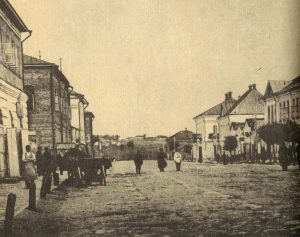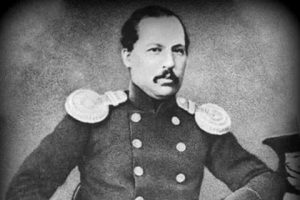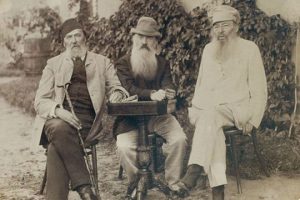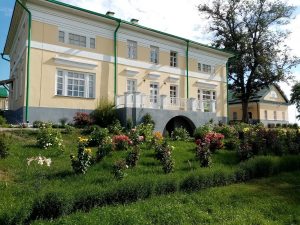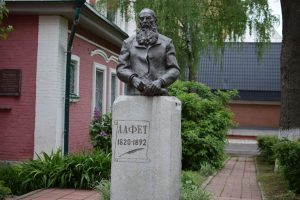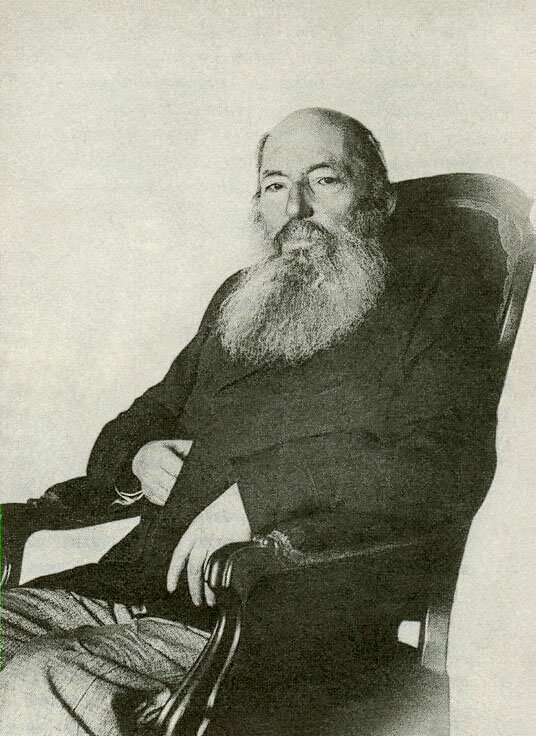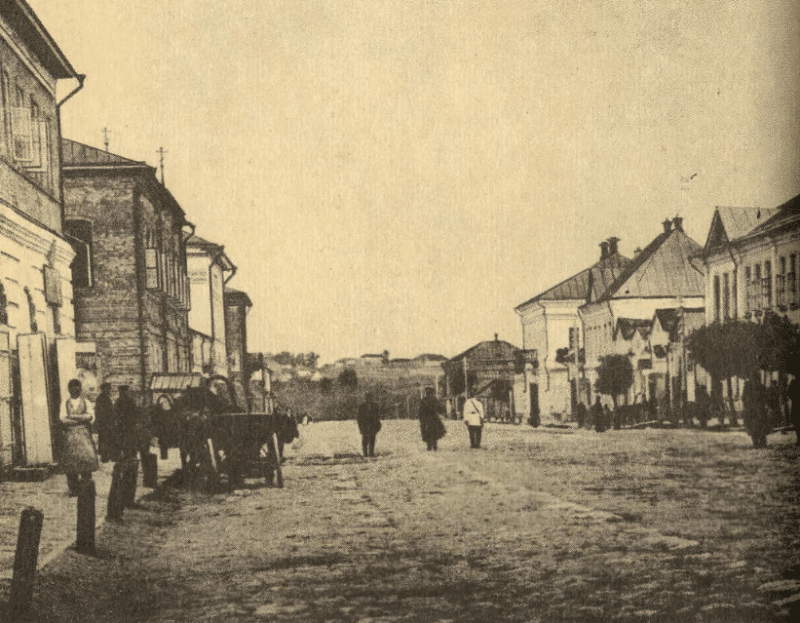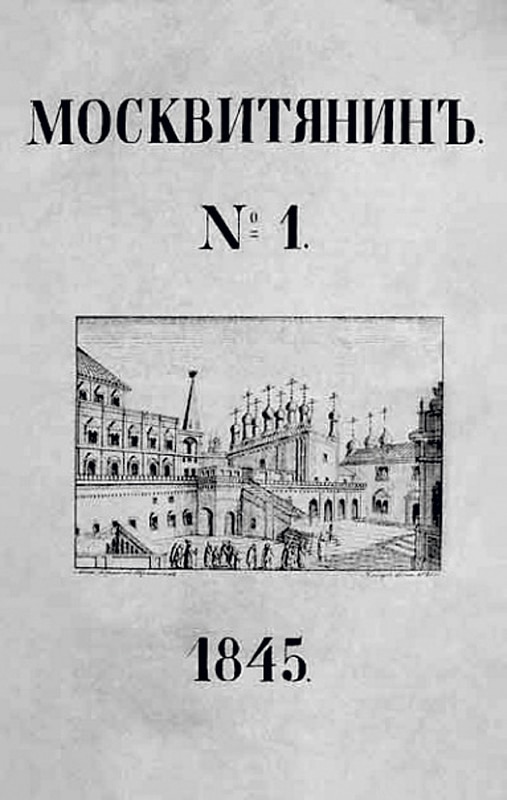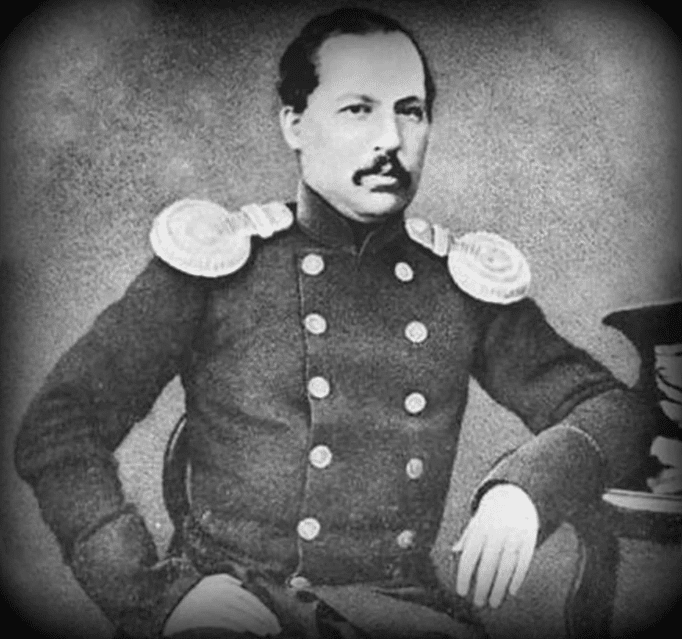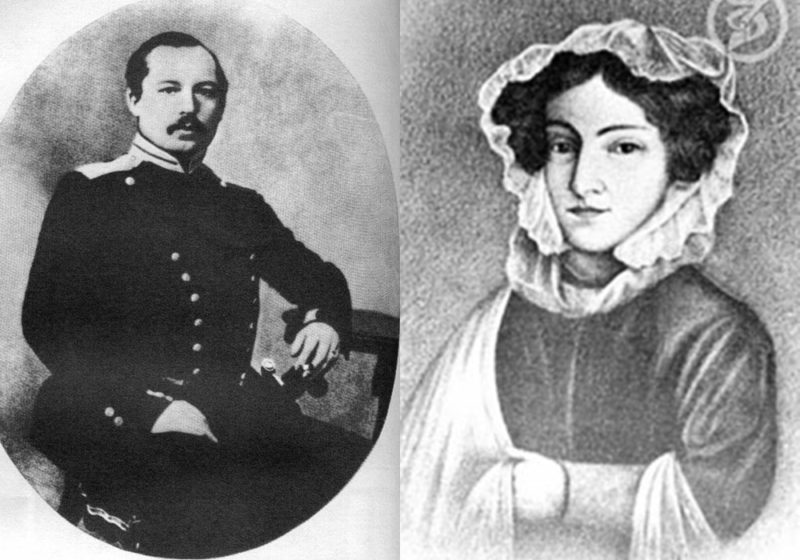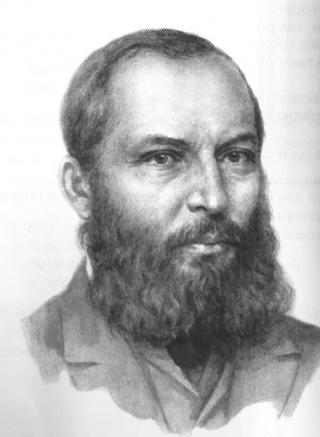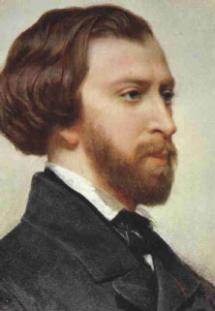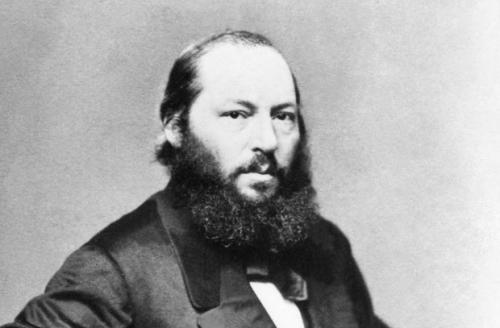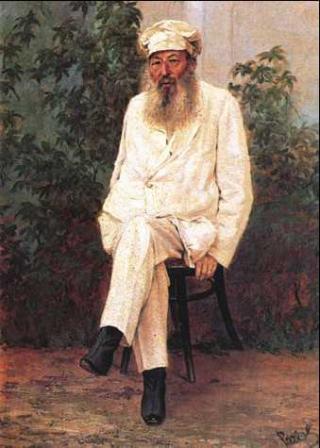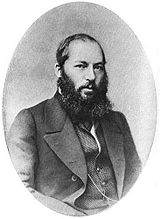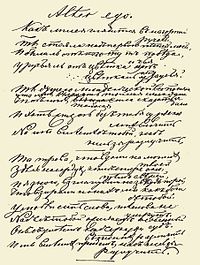Биография Фета — это история жизни человека, который вопреки обстоятельствам и литературной моде смог занять достойное место в пантеоне лириков XIX века. Об истоках таланта Фета, истории борьбы за дворянский титул расскажу детальнее.
Афанасий Фет: детство и юность
История рождения и непростой путь к дворянству — интригующие факты, которые содержит биография Фета. Они объясняют непростую натуру поэта, в которой воля и упорство, прагматизм и хозяйственность сочетались с тонкой душевной организацией, лирическим восприятием действительности.
Афанасий Фет, биография которого бегло изучается в школе, был музыкантом в поэзии. Его произведения, ставшие романсами, исполняли в салонах XIX века, ими восхищаются до сих пор. Расскажу детально о том, когда родился Фет, какое образование получил и какую карьеру, помимо литературы, сделал:
- Детство Фета.
Почему поэт носил необычную для русского дворянина фамилию? Почему в 14 лет перестал быть Шеншиным и был вычеркнут из дворянских списков Российской империи? Ответы на эти вопросы дает биография Фета. Интересные факты о его происхождении раскроют секрет того, как в тонком лирике мог уживаться деловитый и рациональный помещик.
Краткая биография Фета указывает, что он родился 5 декабря 1820 года недалеко от Мценска (Орловская губерния) в имении зажиточного помещика Афанасия Шеншина. Именно здесь поселилась немка Шарлотта Фёт (урожденная Беккер), которую Шеншин представил как жену.
Когда будущей звезде русской поэзии исполнилось 14 лет, оказалось, что мальчик незаконнорожденный: брак отец и мать оформили уже после его появления на свет. Из-за этого Афанасия Фета лишили дворянских прав.
Биографы установили, что настоящим отцом Фета был первый муж Шарлотты — Иоганн Фет. Женщина сбежала с Шеншиным, в которого влюбилась, когда тот отдыхал в Дармштадте, будучи на сносях. К чести русского помещика, тот не афишировал, что не является отцом мальчика. Даже дал взятку, чтобы легализовать его рождение.
Фет, интересные факты рождения которого имели судьбоносное значение, обучался в имении приемного отца. Его воспитанием занимались камердинеры и пришлые семинаристы. Знания Афанасий Афанасьевич Фет получал, наблюдая за окружающим миром — крестьянским укладом, природой, сельским бытом, слушая от крепостных легенды и сказки.
- Образование.
Дворянство в Российской империи можно было получить только за выдающиеся заслуги перед Отечеством. Поэтому четырнадцатилетний Фет Афанасий нуждался в хорошем системном образовании, чтобы сделать карьеру.
Его отдали в обучение в немецкую школу-пансионат в городе Выра (Эстония). Здесь он увлекся литературой, с упоением читал стихотворения А. Пушкина. В 17 будущий поэт поступил в пансион Погодина в Москве. Это учебное заведение открыло ему путь к университетскому образованию — Фет пошел учиться на юриста.
- Краткая биография Фета: воинская служба и быт помещика.
Фет, жизнь и творчество которого пришлись на эпоху борьбы романтизма и реализма в литературе, по завершении учебы в университете стал офицером-кирасиром и отправился на службу в Херсонскую губернию.
Фет обладал истинно немецкой исполнительностью и собранностью. Он служил Родине самоотверженно, поэтому:
- Уже через шесть лет получил звание штабс-ротмистра.
- Вскоре в чине поручика (в 1853 году) перевелся в Петербург и служил в уланском полку.
Афанасий Фет в 1858 году оставил службу, так и не получив дворянский титул, и отправился в Степановку — приобретенное им имение в Орловской губернии. Деловая хватка и предприимчивость сделали его преуспевающим помещиком.
Отцовскую фамилию, а с ней и дворянские права А. Фет получил, когда ему исполнилось 53 года. Он стал не только успешным землевладельцем, но и именитым литератором.
Афанасий Фет: творчество
Творчество Фета контрастировало с тенденциями литературной эпохи, для которой характерны были философские поиски, социальная острота и бичевание нравственных пороков. Писатель Фет отдавал предпочтение созерцательности и воспеванию красоты и гармонии окружающего мира и человека. Вот детали расцвета его таланта:
- Жизнь и творчество Фета: ранний период.
Стихи юный Фет начал писать еще на первом курсе университета. Первым, кто оценил мастерство юного лирика, стал Михаил Погодин. Благодаря ему о Фете узнал Николай Гоголь, который оценил дарование поэта. Высокая оценка маститого писателя и поддержка друга юности поэта Аполлона Григорьева окрылили начинающего лирика.
Баллады, элегии, идиллии, размещенные в дебютном сборнике автора «Лирический пантеон», понравились Евгению Баратынскому и Виссариону Белинскому. Ранний Фет подражал Байрону, воспевал тайные страдания, создавал стилизации под античную поэзию, погружался в романтическую негу. «Отечественные записки» и «Москвитянин» — литературные площадки, где в ранний период печатался поэт Фет.
- Фет: биография «агронома от отчаяния» и столичного автора.
«Я пришел к тебе с приветом», «На заре ты ее не буди…», «Диана», «Свеж и чист твой роскошный венок» и другие поэзии были написаны Фетом во время военной службы на юге империи. Они вошли во второй сборник стихотворений автора, который был издан в 1850 году.
Фет, освободившийся наконец-то от военной службы, полностью отдался агрономии и писательству. Он писал поэмы, художественные очерки, путевые заметки, занимался переводами произведений европейских поэтов-романтиков
Лирика автора и проза этого периода — это произведения о природе, о деревенской идиллии. Фет печатался в «Русском вестнике» и «Заре». Двухтомник стихов поэта, который вышел в 1863 году, неоднозначно оценили критики: одни отметили зрелость лирического таланта, другие обвинили Фета в лицемерии.
- Творчество Фета: кратко о последнем писательском периоде.
Вновь о себе поэт заявил в 1883 году, когда после двадцатилетнего периода издал новый сборник стихотворений «Вечерние огни». На протяжении восьми лет под этим названием выходили четыре тома стихотворений Фета.
Произведения этого периода стали выражением душевного волнения, которое охватило поэта. Он чувствовал, как мир, теряя гармонию, распадается на части. В его стихах последних лет было много страданий и тревог.
Читайте также: Гончаров: биография, жизнь и творчество писателя
Афанасий Фет: личная жизнь, последние годы
Фет, годы жизни которого исполнены тягот, обладал чуткой и нежной душой. Один из стимулов рождения его элегической, романтической поэзии — страдания влюбленного, который не мог воссоединиться с любимой. Об истории драматической любви Фета расскажу детальнее:
- Мария Лазич.
С Марией Лазич — дочерью обедневшего генерала — бравый юнкер Фет познакомился во время херсонской службы. Стихи стали поводом для их сближения.
Через два года встреч их уже воспринимали как пару, но Фет не спешил с предложением. Бедность и бесперспективность будущего не позволяли Афанасию посягать на свободу Марии. В один момент Фет разорвал отношения, чем разбил сердце девушки.
В 1850 году он узнал о трагической гибели возлюбленной: ее платье вспыхнуло от свечи, девушка превратилась в живой факел. Многочисленные ожоги забрали ее жизнь.
- Мария Боткина.
Через семь лет после трагедии поэт женился. Богатая купеческая наследница Мария Боткина — женщина, которую выбрал в супруги Афанасий Афанасьевич Фет. Краткая биография рассказывает о том, что этот брак был спасением для обоих: Мария также пережила тяжелый роман.
Благодаря ее приданому поэт купил поместья и наконец-то стал получать стабильный доход. Детей у супругов не было, хотя жили они дружно. Трагедия юности (смерть Лазич) до конца жизни мучила Фета.
В возрасте 72-х лет поэт предпринял попытку самоубийства: он ударил себя стилетом в висок. Истекая кровью, он произнес: «Добровольно…» и умер. Случилось это 3 декабря 1892 года. Место упокоения писателя — родовое имение Шеншиных Клейменово. Официальной причиной смерти записан сердечный приступ.
Фет ненавидел свою немецкую фамилию и после получения дворянства подписывал все документы фамилией Шеншин. Тем самым он подчеркивал свои истинные истоки, выражал свое мироощущение. Биография писателя поможет понять глубину его лирических произведений.
Читайте также: Чехов: биография, творчество и жизнь писателя
Оригинал статьи: https://www.nur.kz/family/school/1861605-biografia-feta-zizn-interesnye-fakty-tvorcestvo-poeta/
Биография Фета
5 Декабря 1820 – 3 Декабря 1892 гг. (71 год)
4.6
Средняя оценка: 4.6
Всего получено оценок: 8414.
Афанасий Афанасьевич Фет (1820–1892 гг.) – известный русский поэт с немецкими корнями, переводчик, лирик, автор мемуаров. Член-корреспондент Академии наук Петербурга. Вторую половину жизни был агрономом и посвятил себя домашним заботам, писал в журналы очерки о сельском хозяйстве.
Опыт работы учителем русского языка и литературы — 27 лет.
Ранние годы
Родился будущий поэт 23 ноября (5 декабря по новому стилю) 1820 года в с. Новосёлки Мценского уезда Орловской губернии (Российская империя).
Будучи сыном Шарлотты-Елизаветы Беккер, уехавшей из Германии в 1820 году, Афанасий был усыновлен дворянином Шеншиным. Через 14 лет в биографии Афанасия Фета произошло неприятное событие: обнаружилась ошибка в записи о рождении, что лишило его титула.
Образование
В 1837 году Фет окончил частный пансион Крюммера в городе Верро (сейчас Эстония). В 1838 году поступил в Московский университет на философский факультет, продолжая заниматься литературой. Окончил университет в 1844 году.
Творчество поэта
В краткой биографии Фета стоит отметить, что первые стихи были написаны им еще в юности. Поэзия Фета впервые публикуется в сборнике «Лирический пантеон» в 1840 году. С тех пор стихотворения Фета постоянно печатаются в журналах.
Стремясь всеми возможными способами вернуть себе дворянский титул, Афанасий Фет пошел служить унтер-офицером. Затем в 1853 году в жизни Фета происходит переход в гвардейский полк. Творчество Фета даже в те времена не стоит на месте. В 1850 году выходит его второй сборник, в 1856 – третий.
В 1857 году поэт женится на Марии Боткиной. Уйдя в отставку в 1858 году, так и не добившись возвращения титула, приобретает землю, посвящает себя ведению хозяйства.
Новые произведения Фета, опубликованные с 1862 до 1871 года, составляют циклы «Из деревни», «Записки о вольнонаемном труде». Они включают новеллы, рассказы, очерки. Афанасий Афанасьевич Фет строго разграничивает свою прозу и поэзию. Поэзия для него романтична, а проза – реалистична.
Николай Некрасов писал о Фете: «Человек, понимающий поэзию и охотно открывающий душу свою ее ощущениям, ни в одном русском авторе, после Пушкина, не почерпнёт столько поэтического наслаждения, сколько доставит ему г.Фет».
А. А. Фет является автором замечательных стихов для детей. Их популярность у юных читателей вызвана тем, что стихотворения поэта добры и удивительно понятны даже самым маленьким.
Последние годы жизни
В 1873 году Афанасию Фету было возвращено звание, а также фамилия Шеншин. После этого поэт занимается благотворительностью. На этом этапе стихи Афанасия Фета публикуются в сборниках «Вечерние огни», которых с 1883 по 1891 выходит четыре выпуска. Поэзия Фета содержит в основном две темы: природу, любовь.
Смерть настигла поэта 21 ноября 1892 года в Москве в своем доме на Плющихе. Фет скончался от сердечного приступа. Афанасий Афанасьевич был похоронен в родовом имении Шеншиных в с. Клейменово Орловской губернии.
Хронологическая таблица
Другие варианты биографии
Более сжатая для доклада или сообщения в классе
Вариант 2
Интересные факты
- Кроме сочинения стихотворений Фет до самой старости занимался переводами. Ему принадлежат переводы обеих частей «Фауста» Гёте. Он даже планировал перевести книгу Иммануила Канта «Критика чистого разума», но оставил эту идею и взялся за перевод произведений Артура Шопенгауэра.
- Поэт пережил трагическую любовь к Марии Лазич – поклоннице его творчества. Эта девушка была образованной и очень талантливой. Их чувства были взаимны, но паре не удалось связать свои судьбы. Мария погибла, а поэт всю жизнь помнил свою несчастную любовь, которая повлияла на его творчество. Именно ей он посвятил поэму «Талисман», стихотворения «Старые письма», «Ты отстрадала, я ещё страдаю…», «Нет, я не изменил. До старости глубокой…» и другие стихотворения.
- Некоторые исследователи жизни Фета полагают, что смерти поэта от сердечного приступа предшествовала попытка суицида.
- Именно Фет автор известной фразы, которая вошла в «Приключения Буратино» А. Н. Толстого — «А роза упала на лапу Азора».
Все интересные факты из жизни Фета
Популярные вопросы
Почему Фет был лишён дворянского титула?
Афанасий Афанасьевич появился на свет в родовом имении своего отца, Афанасия Неофитовича Шеншина, принадлежавшего к старинному роду Шеншиных. Матерью писателя была немка Шарлотта Фёт (Foeth), с которой русский дворянин познакомился в Германии. До 14 лет Афанасий Афанасьевич носил отцовскую фамилию – Шеншин, но затем выяснилось, что его родители обвенчались по христианскому обычаю после его рождения. В результате Афанасий Афанасьевич был лишён законной фамилии, русского подданства и дворянского титула.
Кого Фет считал своим наставником в литературе?
В 1837 году юный Афанасий Фет приехал покорять столицу, где в течение полугода занимался под руководством известного журналиста, писателя и издателя Михаила Петровича Погодина. Благодаря этой подготовке он стал студентом факультета русской словесности в Московском университете. Погодин был первым человеком, которому Фет приносил на суд свои поэтические произведения. Михаилу Петровичу удалось передать рукописи начинающего поэта Н.В. Гоголю, и тот высоко оценил его талант.
Где учился Фет?
В 1835—1837 годах Афанасий Фет учился в немецком частном пансионе Крюммера. В 1837—1838 годах жил в пансионе Михаила Петровича Погодина, где готовился к поступлению в университет. В 1838 году поступил в Московский университет, сначала на юридический факультет, затем — на историко-филологическое (словесное) отделение философского факультета, которое окончил в 1844 году.
Где служил Фет?
В 1845 году, после окончания университета, Афанасий Фет поступил унтер-офицером в кирасирский Военного ордена полк, чей штаб находился в Новогеоргиевске Херсонской губернии. Спустя 8 лет был прикомандирован к уланскому Его Величества лейб-гвардии полку. Во время Крымской войны он находился в Балтийском Порту в составе войск, охранявших эстонское побережье. В 1858 году Афанасий Афанасьевич вышел в отставку в чине гвардейского штабc-ротмистра и поселился в Москве.
Как Фет воспринимает жизнь?
Унижение, которое испытал в отрочестве Афанасий Фет, неожиданно лишившись отцовской фамилии и дворянского титула, наложило большой отпечаток на всю его дальнейшую судьбу. Статус «человека без имени» он воспринял как страшный позор, и на протяжении всей жизни стремился вернуть утраченное положение в обществе. Несправедливость, с которой Фет столкнулся в юности, выработала в нем мрачный взгляд на жизнь и общество. Афанасий Афанасьевич был очень тяжёлым в общении человеком.
Что Фет считает вечным источником красоты?
Несмотря на внешнюю угрюмость и замкнутость, Афанасий Афанасьевич обладал тонкой душой, способной откликаться на все прекрасное. Поэт видел истинную, безукоризненную красоту в природе, в малейшем её проявлении. Они воспевал эту гармонию, эту идеальную красоту в своих произведениях.
Что перевёл Фет?
В творческой биографии Фета было место не только поэзии, но и переводам. Будучи прекрасно образованным человеком, в совершенстве владевшим несколькими иностранными языками, Фет занимался переводами в течение всей своей жизни. Он перевёл лирические стихотворения немецких поэтов (Гёте, Шиллера, Уланда, Гейне, Рюккерта, Мёрике), французских (Шенье, Ламартина, Беранже), английских (Байрона, Мура), польского поэта Мицкевича, персидских поэтов Гафиза и Саади. В последние годы жизни Фет посвятил себя переводам произведений античных поэтов: Горация, Вергилия, Марциала и других.
О чем писал Фет?
Афанасий Афанасьевич Фет вошёл в историю русской литературы как представитель «чистого искусства». Он считал, что единственной целью настоящего художника должна быть только красота. Главными направлениями его творчества были любовная, пейзажная и философская лирика. Лишь в последние годы жизни его произведения стали ещё более философскими: поэт начал писать о единстве человека и Вселенной, о высшей реальности, о вечности.
С каким журналом сотрудничал Фет?
Свои произведения Афанасий Фет публиковал в самых популярных литературных журналах своего времени: «Современник», «Москвитянин» и «Отечественные записки».
Какая ещё фамилия была у Фета?
Настоящая, «законная» фамилия русского поэта – Шеншин. Он и получил её при рождении от своего отца, потомственного дворянина Шеншина Афанасия Неофитовича. Однако когда поэту исполнилось 14 лет, выяснилось, что его родители обвенчались по православному обычаю после его рождения. В итоге мальчик лишился всех своих законных прав, в том числе и права носить фамилию Шеншин, и стал носить материнскую фамилию Фет.
Откуда родом мать Фета?
Матерью Афанасия Фета была немка Шарлотта-Елизавета Фет (в девичестве Беккер), дочь немецкого бюргера. Некоторое время она была супругой Иоганна Фета, асессора местного суда в Дармштадте, но любовь к русскому дворянину Шеншину вынудила её бросить мужа и навсегда переехать в Россию.
Тест по биографии
После прохождения теста вы намного лучше запомните краткую биографию Фета:
Доска почёта

Чтобы попасть сюда — пройдите тест.
-
Антонина Богова
12/12
-
Серёжа Головко
12/12
-
Давид Дочия
12/12
-
Любовь Леонова
12/12
-
Kani Aidarov
10/12
-
Максим Угдыжеков
12/12
-
Ольга Баздникина
12/12
-
Ольга Молодзинская
11/12
-
Наталия Иванникова
11/12
-
Анна Антоненко
12/12
Оценка по биографии
4.6
Средняя оценка: 4.6
Всего получено оценок: 8414.
А какая ваша оценка за эту биографию?
 Роль и место в литературе
Роль и место в литературе
Афанасий Фет – русский эстет, поэт-лирик отечественной литературы 19 века, переводчик и мемуарист. Фет входил в когорту поэтов «чистого искусства», для которой характерно первостепенное выражение чувств и эмоций. Поэтому среди его стихов так много пейзажной, любовной и философской лирики.
В его произведениях не найти обсуждения социальных и политических проблем. Особенностью его стихов была способность проникать в самые недра человеческой души и излагать это в стихотворной форме.
Несмотря на то, что сам Фет считал высшей целью своего творчества описание красоты природы, некоторые его стихи все же содержат черты реализма. В целом, творчество поэта вызывало противоречивые отклики. Несмотря на это, его лирике принадлежит немалая роль в русской поэзии.
Происхождение и ранние годы
Афанасий Афанасьевич Фет родился 5 декабря 1820 года. Дата его рождения не точна, поскольку в различных источниках день и даже месяц рождения – разные.
Родина А. Фета Мценский уезд
Родиной его была деревня Новоселки Орловской губернии. Местом рождения – родовое имение отставного ротмистра, предводителя дворянства Афанасия Шеншина. Почему мир знает поэта под фамилией Фет? Его отец какое-то время жил в Германии, где познакомился с Шарлоттой Фёт. Эта фамилия досталась ей от первого мужа. В 1819 году молодые люди поженились, а в 1820 году на свет появился их сын Афанасий. Отец, как и полагается, дал ребенку свою фамилию.
Но через 14 лет обнаружилось, что венчание по православным обычаям состоялось после его рождения. Афанасию было предписано поменять фамилию Шеншин на Фёт. К сожалению, этим дело не закончилось. Имя Афанасия было исключено из родословных записей, что лишало его титула. Фет еще долго не мог оправиться от этого удара. Две точки исчезли из фамилии позже, из-за невнимательности очередного секретаря-писаря
Сдержанные воспоминания о детстве были продиктованы характером отца, сурового, скупого на ласку человека. Мать была терпеливой, покорной женщиной. Атмосфера в семье была тягостной и мрачной.
Афанасию было неуютно в родительском доме, поэтому он все свободное проводил в играх с дворовыми ребятишками. Читать по-немецки его научила мать. С русской азбукой его познакомил дворовый повар Афанасий.
Потом были и другие учителя. Один из них, семинарист Петр, пытался обучать Фета грамматике, его сменил дворовый парикмахер Филипп, который сам был полуграмотным и больший упор делал на чтение молитв. Едва овладев языком, Фет увлекся чтением русских поэтов. Особенное восхищение в нем вызвал слог Пушкина.
Образование
В 1834 г. семья переехала в г. Верро, где Афанасия отдали в немецкий пансионат Крюммера. Здесь юноша уже начинает пробовать себя в качестве поэта. В 1837 году он едет в Москву и поступает в пансион Погодина.
А. Фет в молодости
Через полгода, в 1838 году Афанасий становится студентом юридического, а потом словесного отделения Московского университета. Студенческая жизнь свела молодого человека с Аполлоном Григорьевым. Считается, что именно он рассмотрел поэтическое дарование Афанасия.
За время учебы Фету удалось выпустить небольшую книгу своих стихов «Лирический пантеон», одобрительно встреченную Белинским и Гоголем. Похвала сурового Белинского стала напутствием для молодого поэта и еще больше воодушевила его. В 1843 г. публикуется стихотворение «Я пришел к тебе с приветом». Оно стало одним из лучших его творений.
Вместе с тем, Фета не перестает терзать мысль об утрате дворянских привилегий. С целью вернуть титул, он в 1845 году поступает в один из южных кавалерийских полков и, спустя год, становится офицером.
В 1853 году его переводят на службу в полк, который был расквартирован недалеко от Петербурга. Это дает ему возможность общаться с И.А. Гончаровым, А.Н. Некрасовым, И.С. Тургеневым.
Творчество
В 1850 году вышел в свет сборник с простым названием «Стихотворения». В его составе было трехстишье, поразившее ведущих литераторов полным отсутствием глаголов. Никакого действия. Только чувства…Тончайшие душевные всплески и боль от гибели возлюбленной, в раннем уходе которой он винил себя всю жизнь. «Шепот, робкое дыханье…» еще больше прославило поэта.
В том же 1850 году поэт приступает к переводам из Шекспира и Горация. В 1856 году свет увидел очередной сборник стихов. В 1858 году Фет оставил воинскую карьеру, так и не восстановив титул. В это же время он начинает сотрудничать с журналом «Современник».
Я. Полонский, Н. Страхов, А. Фет
В 1860 году Фет приобретает собственный хутор в Мценском уезде и, не прекращая писать, погружается в дела хозяйственные. В 1867 году он избирается мировым судьей. Наконец, в 1873 году ему удалось вернуть отцовскую фамилию и сопутствующие ей регалии. Поэт вновь стал Афанасием Афанасьевичем Шеншиным.
В 1877 году он, продав свой хутор, перебирается в Москву, но жить предпочитает на природе, в имении в Курской губернии. Здесь он начинает трудиться над мемуарами «Мои воспоминания». С 1883 по 1891 гг. публикуются выпуски сборника его стихов «Вечерние огни». Помимо стихов из-под его пера выходили баллады и элегии.
Большую часть времени Фет посвящает переводам Гете, Гейне, Горация, Овидия. За время своего творчества им были переведены две части «Фауста» Гете. Задумывался поэт и над переводом Библии и «Критики чистого разума» И. Канта. Однако это так и осталось в его планах.
Фрагмент стихотворения
В саду А.А. Фет
Приветствую тебя, мой добрый, старый сад,
Цветущих лет цветущее наследство!
С улыбкой горькою я пью твой аромат,
Которым некогда дышало детство.
Густые липы те ж, но заросли слова,
Которые в тени я вырезал искусно,
Хватает за ноги заглохшая трава,
И чувствую, что там, в лесу, мне будет грустно.
Как будто с трепетом здесь каждого листа
Моя пробудится и затрепещет совесть,
И станут лепетать знакомые места
Давно забытую, оплаканную повесть.
Главные произведения
Среди огромного количества произведений можно выделить сборники лирических стихов, прозу, письма, поэмы. Стихотворения, ставшие наиболее популярными:
- Если радует утро тебя
- Степь вечером
- Только встречу улыбку твою
- Я долго стоял неподвижно
- Я пришел к тебе с приветом
Сборник «Зреет рожь над жаркой нивой…» включает такие произведения как «Я тебе ничего не скажу», «На заре ты меня не буди» и другие.
Можно смело сказать, что вся последующая любовная лирика Фета строилась на воспоминаниях о его страстной
Музей-усадьба Фета в Воробьевке
любви к Марии Лазич. Ей была посвящена поэма «Талисман».
Еще одно прекрасное стихотворение “Сияла ночь. Луной был полон сад…” объединяет в себе восторг музыкой, волшебной ночью и прекрасным пением незнакомки.
Поэт писал о единении человека и природы, включая Вселенную. Последние его произведения все больше приобретают философский смысл, в них часто упоминается слово «вечность». Самые восторженные отзывы вызвал сборник его стихотворений «Вечерние огни».
Последние годы
В 1884 году Фету была вручена Пушкинская премия Императорской Академии за полный перевод трудов Горация. В 1886 году он избирается членом-корреспондентом Академии Наук. В 1888 году Фет удостоился звания камергера.
Памятник Фету в Орле
В последние 7 лет жизни было издано много переводов: «Стихотворения» Катулла «Скорби» Овидия «Элегия» Тибулла, «Превращения» Овидия, «Сатиры» Ювенала. В 1890 г. вышли в свет два тома мемуаров «Мои воспоминания», третий том «Ранние годы моей жизни» был издан после смерти поэта
Будучи богатым помещиком, Фет оказывал помощь голодающим организацией благотворительных литературных вечеров. Помогал крестьянам, принимал участие в устройстве больницы.
В последние годы Фета беспокоили заболевания легких и сердца. 21 ноября 1892 года поэт скоропостижно скончался в Москве от сердечного приступа. Его могила находится в родовом имении Шеншиных, в селе Клейменово.
Хронологическая таблица (по датам)
| Год (годы) | Событие |
| 1820 | Год рождения А.Ф. Фета |
| 1835 | Поступление в пансион Крюммера |
| 1838 | Поступление в Московский университет |
| 1840 | Выход сборника «Лирический пантеон» |
| 1845 | Поступление в артиллерийский полк |
| 1853 | Перевод в гвардейский полк |
| 1856 | Выход сборника под ред. И.С. Тургенева |
| 1858 | Выход в отставку, переезд в Москву |
| 1863 | Выход стихотворений в 2 томах |
| 1867 | Избрание на должность мирового судьи |
| 1873 | Возвращение титула дворянина |
| 1883-1891 | Издание выпусков «Вечерних огней» |
| 1892 | Умер поэт А.А. Фет |
Интересные факты
- Фет периодически страдал от депрессии;
- на стихи поэта написано много романсов;
- Фету принадлежит известный палиндром «а роза упала на лапу Азора»;
- в жизни поэта была трагическая любовь;
- не написал ни одного произведения с отрицательным смыслом;
- после Фета не осталось ни одного наследника;
- поэт не дожил 2 дня до своего дня рождения.
Память о поэте
В 1997 году в городе Орел был открыт памятник А.А. Фету.
Памятник поэту в городе Мценске
Борт «Аэрофлота» модели Airbus A320-214 назван в честь А.А. Фета
Музей А.А. Фета в селе Воробьевка Курской области
Ссылки
https://ruskline.ru/analitika/2016/01/11/u_lyubvi_est_slova Памяти Фета
http://www.temples.ru/show_picture.php?PictureID=83761Памятник Памятник Фету возле церкви в Клейменово
https://www.bankgorodov.ru/sight/pamyatnik-a-a-fety Памятник Фету в г. Орел
https://vadimrazumov.ru/624368.html Усадьба Клейменово
https://www.tourister.ru/world/europe/russia/city/kursk/museum/33867
Музей-усадьба А.А. Фета
https://www.youtube.com/watch?v=ppFkfjsxJC4 Фильм «Поэзия и судьба» на YouTube
http://www.m-necropol.ru/fet.html Место захоронения и могила А.А. Фета
Ирина Зарицкая | Просмотров: 25.2k
Афанасий Фет — биография
Афанасия Фета называют настоящим гением литературы, его творчество признано во всем мире. Лирические стихотворения этого автора затрагивают самые возвышенные, тонкие струны человеческой души. О природе в своих произведениях Фет умел говорить так, что перед читателем сразу возникала яркая, целостная картина. Все его творчество пронизано любовью к человеку, ко всему живому. Сквозь призму гениальных творений нетрудно понять душу самого поэта – благородную, нежную и чуткую.
Произведения Фета давно и прочно вошли в школьную программу. На примере его творчества дети учатся любить свою родину, получают правильные представления о высоких чувствах – любви и дружбе. В биографии этого поэта очень много тайн и загадок, которые до настоящего времени не смогли расшифровать многочисленные исследователи. К ним относятся и обстоятельства рождения великого поэта, так ясно и точно умевшего передавать все нюансы человеческих чувств, все оттенки красоты русской природы.
Детство
Тайны Афанасия Фета начинаются с самой даты его рождения. Биографы называют две даты, по их мнению, Афанасий Афанасьевич Шеншин родился в Мценске 10 ноября, либо это событие произошло 11 декабря 1820 года. Сам же поэт считал датой своего рождения 5 декабря 1820 года, именно в этот день он отмечал праздник в кругу семьи.
Фамилию Шеншин поэт носил в течение тридцати трех лет (первые 14 и последние 19 лет жизни). Его отцом был Афанасий Неофитович Шеншин, орловский помещик, офицер, ушедший в отставку в чине ротмистра. Он был представителем многочисленного и богатого рода, владевшего доброй половиной Мценского уезда. Мать поэта, Шарлотта-Елизавета Беккер, дочь немецкого бюргера, до брака с Шеншиным уже была замужем.
Отец будущего поэта приехал в Германию лечиться на воды. Мест в гостинице города Дармштадта не было. Орловский помещик воспользовался гостеприимством обер-кригскомиссара Карла Беккера, поселился в его доме. Беккер был вдовцом, вместе с ним проживала его замужняя дочь с зятем, носившим фамилию Фет, и маленькой дочкой. Дочь Беккера, Шарлотта-Елизавета Фет, на момент знакомства с Шеншиным была беременна вторым ребенком. Молодой женщине было 22 года.
Афанасий Шеншин был старше Шарлотты на 23 года, и его никак нельзя было назвать красавцем. Тем не менее, молодая немка прониклась теплыми чувствами к русскому помещику. Он очень отличался от ее мужа Беккера, с которым Шарлотта никак не могла найти общий язык. Их отношения зашли в тупик задолго до знакомства с Шеншиным.
Материальное положение женщины тоже оставляло желать лучшего, Иоганн наделал столько долгов, что расплатиться по ним было просто нереально. Беспутного Фета не останавливало даже то, что в семье росла маленькая Каролина. Все это отравляло жизнь Шарлотты, она поневоле обратила внимание на спокойного, выдержанного Шеншина. Шарлотта развелась с мужем, вышла замуж во второй раз – за русского помещика. Все это произошло в Дармштадте.
После этого новоиспеченная семья спешно покинула немецкий город. Маленькая Каролина осталась в доме Беккера. Именно это обстоятельство никак не мог принять добропорядочный бюргер Беккер – как его дочь посмела бросить на произвол судьбы маленького, горячо любимого ею ребенка. Он ругал Шарлотту, называл ее искательницей приключений. Поступок дочери подействовал на него удручающе, отец прямо говорил, что его дочь лишилась рассудка. Как оказалось впоследствии, Беккер не ошибался. У его дочери на самом деле было выявлено психическое расстройство.
В России у молодой семьи родился младенец, это произошло через два месяца после приезда из Дармштадта. Мальчик прошел обряд крещения по православному обычаю, в честь отца его назвали Афанасием. Это имя в переводе с греческого языка имеет значение «бессмертный». Родители малыша оказались настоящими провидцами, творчество их сына, знаменитого литератора, поистине оказалось бессмертным. Исследователи биографии поэта высказывают предположение, что мальчика записали Шеншиным за взятку, которую Шеншин-старший вручил духовному лицу.
Шарлотта приняла православие и новое имя, ее стали называть Елизаветой Петровной. Она сочеталась браком с Шеншиным, произошло это через два года после рождения Афанасия. Женщина была очень благодарна Шеншину за его отношение к приемному сыну, он любил мальчика как родного, был заботливым, внимательным отцом. После Афанасия в семье Шеншиных родилось еще шестеро детей, двое из которых умерли в младенчестве.
Поэт в своем автобиографическом произведении «Ранние годы моей жизни» вспоминал о болезни своей сестренки Анюты, которая была младше его на год. Когда девочка заболела, родные сделали все возможное, чтобы поставить ее на ноги, день и ночь дежурили возле постельки ребенка. Но усилия докторов и родственников не увенчались успехом, Анюта умерла, а маленький Афанасий, узнав об этом, упал в обморок.
Иоганн Фет не забыл обиду, которую ему нанесла жена. Он шантажировал свою сбежавшую супругу, предлагая ей погасить его долги в обмен на признание Афанасия своим ребенком. Воспитанием Каролины занималась гувернантка, которая в 1824 году стала его второй женой. Через два года после женитьбы Иоганн умер. Перед этим он вычеркнул из списка наследников своего сына Афанасия, живущего в России. Данный факт чрезвычайно огорчил Елизавету Петровну, в письме к своему брату она возмущалась, что Иоганн в порыве злости отрекся от законов природы.
Когда будущему поэту было 14 лет, духовная консистория аннулировала крещальную запись, касающуюся признания Афанасия законным сыном Шеншина.
Подростку присудили немецкую фамилию Фет, поскольку по законам православия он был рожден вне брака. Лютеранское благословение, которое супруги получили в Дармштадте, не имело силы в России. Вместе с русской фамилией юноша утратил и право на потомственное дворянство. Он получил статус «гессендармштадтского подданного», иностранца сомнительного происхождения.
Надо ли говорить, каким ударом это стало для юноши, который горячо любил своего русского отца и считал себя истинно русским человеком. Почти вся его последующая жизнь ушла на восстановление справедливости. Но поэту удалось вернуть себе русскую фамилию, с 1873 года он вновь стал Шеншиным.
Детство мальчик провел в имении Новоселки, расположенном в Орловской губернии. Отцу принадлежала прекрасная усадьба, дом с мезонином, двумя флигелями. Новоселки были расположены в живописной местности, Афанасий любил смотреть на зеленые луга, могучие деревья, кроны которых были пронизаны солнцем. Крестьянские домики с дымящимися трубами и белоснежная церковь со звонкими колоколами на фоне яркой зелени тоже вызывали умиление.
Мальчику, растущему на таком приволье, умные родители не ограничивали свободу. Он вставал в пять утра, в одной пижаме убегал к горничным, ведь они рассказывали такие интересные сказки. Служанки не сидели сложа руки, строгая хозяйка с раннего утра заставляла их прясть, но мальчик всегда умел добиться их расположения и очередной сказки.
Детство юного Фета было счастливым и безоблачным, воспоминания о нем всегда находили место в творчестве поэта. В течение двух лет, с 1835 по 1837 годы, подросток обучался в немецком частном пансионе Крюммера. Он был очень старательным и прилежным учеником. Любимым предметом Фета была литература, в это время он и сам пробует писать стихи.
Литература
После окончания обучения молодой человек отправился в столицу. Он нуждался в репетиторе, которым стал Михаил Петрович Погодин, знаменитый издатель, писатель и журналист. Через шесть месяцев Фет становится студентом Московского университета. Он учился на юридическом факультете, но очень скоро понял, что выбрал неправильное направление. Студент перевелся на факультет русской словесности. Уже на первом курсе он стал писать стихи. Несколько лучших стихотворений Фет отдает на суд Погодина.
Михаил Петрович сразу понял, что у этого юноши есть литературный талант. Но он решил подкрепить свои выводы о способностях Фета мнением еще одного известного литератора. Им стал Николай Гоголь. Ознакомившись с рукописями молодого стихотворца, он вынес свой вердикт, назвав Фета «несомненным дарованием». Похвала такого мастера художественного слова окрылила юного поэта. В 1840 году он выпустил свой первый сборник, назвав его «Лирическим пантеоном». С этого времени Фет начинает печататься в журналах «Москвитянин», «Отечественные записки».
Однако первый сборник стихов не принес их автору славы. Многие современники просто не обратили внимания на его дебют, Фет показался им одним из многих, ничем не примечательных стихотворцев. Жизнь самого поэта в этот период кардинально изменилась, ему было уже не до творчества. О пере и чернильнице пришлось надолго забыть. Он окончил университет и собирался дальше работать на литературном поприще, но в 1844 году скончалась Елизавета Петровна. Это стало большой трагедией для поэта, он относился к своей матушке с большой любовью. Следом пришла еще одна невосполнимая утрата, умер дядя Фета, с которым у него тоже сложились теплые отношения.
От своего состоятельного дядюшки Афанасий ожидал наследства, но его надежды были напрасными. Деньги богатого родственника таинственным образом исчезли. Оставшись без каких-либо средств к существованию, литератор поступил на военную службу. Он надеялся поправить свое материальное положение, заработать состояние. В течение тринадцати лет Фет служил в кирасирском полку. Он начал службу в чине унтер-офицера, закончил ее гвардейским штаб-ротмистром, был участником Крымской войны. Во время военных действий Фет находился в составе войск, охранявших эстонское побережье.
Но поэтический дар этого человека не давал ему покоя даже во время военной службы. В 1850 году Фет выпускает второй сборник стихов. Эта книга получила много восторженных отзывов от любителей поэзии и критиков. Третий сборник стихов талантливого литератора читателям пришлось ждать долго, книга вышла под редакцией Ивана Тургенева. В 1863 году увидело свет двухтомное собрание сочинений Афанасия Фета.
Афанасий Фет — Осень Как грустны сумрачные дни Беззвучной осени и хладной! Какой истомой безотрадной К нам в душу просятся они! Но есть и дни, когда в крови Золотолиственных уборов Горящих осень ищет взоров И знойных прихотей любви. Молчит стыдливая печаль, Лишь вызывающее слышно, И, замирающей так пышно, Ей ничего уже не жаль.
Литературные критики считают Фета утонченным лириком, отождествлявшим природу и человеческие чувства. Его называют большим художником, мастером лирических стихотворений. Но кроме лирических стихотворений, элегий, Фет писал и крупные произведения – баллады, думы, послания. Литературоведы считают Фета настоящим новатором, он изобрел и широко применял собственный жанр – «мелодии». Так поэт называл свои отклики на музыкальные произведения.
Афанасий Фет был талантливым переводчиком. Он отлично знал несколько языков, делал прекрасные переводы стихов латинских авторов, перевел с немецкого языка «Фауста» Гете.
Могут быть знакомы
Личная жизнь
Современники никак не могли понять Афанасия Фета. Этот практичный, рачительный хозяин, сумевший сделать приобретенное им имение рентабельным, совершенно не сочетался с тонким лиризмом его стихотворений. Он часто пребывал в мрачной задумчивости, и не слишком располагал собеседников к себе.
Афанасий влюбился в 28 лет, встретив свою Музу на балу в гостеприимном доме М. И. Петковича. Его избранницей стала Мария Лазич, дочь отставного кавалерийского генерала, темноглазая красавица сербского происхождения. Девушка заворожила поэта, она хорошо знала его стихи, была умна, начитанна, прекрасно музицировала. Они с первого слова понимали друг друга, как это могут делать только родственные души.
К сожалению, девушка была также бедна, как и Афанасий. Практичный, расчетливый Фет, с ранних лет страдавший от необдуманного поступка своих родителей, не решился создать заведомо неблагополучный союз.
Он отказался от девушки, стал инициатором расставания. Совсем скоро сербская красавица умерла, ее платье вспыхнуло от небрежно брошенной спички. Получив сильные ожоги, Мария скончалась.
Убитый горем Фет нашел утешение в творчестве. Его стихи наконец-то стали приносить большие гонорары, он смог отправиться в путешествие по Европе. Здесь он познакомился с представительницей известной российской династии, Марией Боткиной. Состоятельная, но не слишком привлекательная женщина была на редкость добродушной, имела легкий нрав. Брак по расчету, который заключил с ней Фет, оказался очень удачным. Офицер ушел в отставку, на приданое жены купил имение в Мценском уезде, стал заниматься хозяйством и писать стихи. Детей у этой пары не было, но они и без того были очень счастливы.
Причина смерти
В ноябре 1892 года поэт скончался от сердечного приступа. Он был похоронен в селе Клейменово Орловской губернии, в родовом имении Шеншиных. За 19 лет до этого Фету высочайшим указом была возвращена русская фамилия и дворянство.
Ходили слухи, что перед кончиной он пытался покончить жизнь самоубийством, воспользовавшись ножом для разрезания книг.
Ссылки
- Страница в Википедии
Для нас важна актуальность и достоверность информации. Если вы обнаружили ошибку или неточность, пожалуйста, сообщите нам. Выделите ошибку и нажмите сочетание клавиш Ctrl+Enter.
Афанасий Афанасьевич Фет – русский поэт-лирик и переводчик немецкого происхождения. Родился Фет 23 ноября 1820 года в селе Новосёлки в Орловской губернии, а умер 21 ноября 1892 года в Москве. Современников всегда поражала литературная лирика писателя, успешно сочетающаяся с предприимчивостью успешного помещика.
Биография
Родился поэт в семье орловского помещика Афанасия Шеншина и Шарлотты-Елизаветы Беккер, покинувшей родную Германию. Получал знания юный литератор в немецком частном пансионате Крюммера, где впервые проявилась его любовь к поэзии и филологии. Дальнейшим образованием Фета занимался уже Московский университет.
В 1845 году, когда Афанасий закончил обучение в университете, его ждала военная служба. Спустя 12 месяцев трудолюбивый лирик получил свое первое военное звание. В 1853 году по долгу службы прибыл в Санкт-Петербурге, после перевода в местный гвардейский полк. Уже через год молодой человек служил в Балтийском порту, воспоминания об этом периоде легли в основу дальнейших мемуаров “Мои воспоминания”. В отставку Фет вышел в 1858 году, поселившись после окончания военной службы в Москве. Но и про северную столицу он не забывал – частенько наведывал в Петербург, ища вдохновения и встречаясь с друзьями юношеской поры.
В 1857 году Афанасий Афанасьевич сделал предложение Марии Боткиной, являющейся родной сестрой известного литературного критика. В дальнейшем Фет приобрел имение в Мценской уезде, где они вдвоем с женой занимались развитием сельского хозяйства: выращивали зерновые культуры, содержали небольшую конную ферму, держали крупный рогатый скот, разводили пчел и птиц. Прибыль, полученная с семейного хозяйства, являлась основным источником дохода семьи.
В 1867 году Фета избрали на должность мирового судьи. Судейская практика литератора продлилась 11 лет и завершилась в 1878 году.
Умер поэт от сердечного приступа, по непроверенной информации перед этим он пытался свести счёты с жизнь, совершив неудачную попутку самоубийства. Похоронен лирик в селе Клейменово в семейном имении.
Творческий путь
Произведения Фета печатали в газетах и журналах еще во время его учебы в университете. Первая полноценная работа юного лирика вышла в свет в 1840 году – это был сборник стихов “Лирический пантеон”, написанный в соавторстве с университетским приятелем Аполлоном Григорьевым. В 1842 году выходят публикации в журналах “Отечественные записки” и “Москвитянин”.
Во время службы, Афанасий Афанасьевич не забывает и о творческой составляющей своей жизни. Второй сборник появляется в 1850 году, а в 1856 – уже готов третий. Данные работы получают положительные рецензии критиков и опытных журналистов. Немного позже Фет познакомится с редакцией “Современника” и даже заведет приятельские отношения с местными литераторами. Хорошие отзывы о произведениях позволяют поэту получить признание и у простого населения.
С 1862 года по 1871 выпускаются новеллы, рассказы и очерки, в том числе цикл произведений “Из деревни”, “Записки о вольнонаемном труде” и двухтомное собрание стихотворений. Фет четко разделяет литературную деятельность, считая поэзию инструментом для выражения романтических чувств, а прозу – отражением реального положения вещей.
Позже в свет выходят выпуски “Вечерних огней”. В 90-ых годах появляется книга “Мои воспоминания”, описывающая весь жизненный путь Фета, а после смерти публикуют вторую книгу с мемуарами – “Ранние годы моей жизни”.
Кроме создания собственных произведений, Фет всю свою жизнь занимался переводами зарубежной литературы. Именно ему принадлежит перевод “Фауста”, вышедшего из под пера Гёте. Также поэт переводил Шопенгауэра и хотел взяться за произведения Канта.
|
Afanasy Fet |
|
|---|---|

Portrait by Ilya Repin |
|
| Born | 5 December [O.S. 23 November] 1820 Mtsensk, Russian Empire |
| Died | 3 December 1892 (aged 71) Moscow, Russian Empire |
| Relatives | Vladimir Semenkovich |
| Signature | |
 |
Afanasy Afanasyevich Fet (Russian: Афана́сий Афана́сьевич Фет, IPA: [ɐfɐˈnasʲɪj ɐfɐˈnasʲjɪvʲɪtɕ ˈfʲɛt] (listen)), later known as Shenshin (Russian: Шенши́н, IPA: [ʂɨnˈʂɨn] (
listen); 5 December [O.S. 23 November] 1820 – 3 December [O.S. 21 November] 1892), was a renowned Russian poet regarded as the finest master of lyric verse in Russian literature.[1][2]
Biography[edit]
Afanasy Fet was born on 5 December 1820 to Afanasy Shenshin, a 44-year-old Russian landlord from Mtsensk, and Charlotte Becker, a 22-year-old daughter of Karl Becker, a German inn-keeper. While staying with them during his visit to Germany, Shenshin fell in love with Charlotte, who agreed to follow him to Russia. Pregnant with her second child, she divorced her husband Johann Foeth, a Darmstadt court official, and married her Russian suitor, but was forced to leave her one-year-old daughter Carolina behind.[3][note 1] In November, at Shenshin’s Novosyolky estate, she gave birth to a boy who was christened Afanasy Afansyevich Shenshin.[1]
Fourteen years later, as Shenshin and Becker’s marriage, registered in Germany, proved to be legally void in Russia, Afanasy had to change his surname from Shenshin to Foeth, that of his biological father.[1] This proved to be an exceptionally traumatic experience for the boy, aggravated as it was by the fact that back in Darmstadt Johann Foeth refused to acknowledge him as his son.[note 2] According to Tatyana Kuzminskaya (Sophia Tolstaya’s sister), Fet’s «greatest grievance in life was the fact that he was not a legitimate Shenshin like his brothers (who treated him as an equal) but the out-of-wedlock son of Foeth, a German Jew.[note 3] But he couldn’t bring himself to admit that the name Fet was so much superior to that of Shenshin, and that he himself had made it so through his poetry, a fact which Leo Tolstoy tried in vain to convince him of.»[1][4]
Education and literary debut[edit]
At age 14 Afanasy Shenshin was sent to a German boarding school in Võru.[5] It was there that he was informed in a letter that from then on his name would be Fet, not Shenshin, which made him feel, admittedly, «like a dog that had lost its master.»[2] In 1837 Afanasy Shenshin moved his stepson to a Moscow boarding school owned by the historian Mikhail Pogodin. In autumn 1838 Fet enrolled at Moscow University to study law and philology. In his first year he started writing poetry, later citing Goethe, Heine, and Yazykov as influences,[4] and met Apollon Grigoriev, a fellow student and aspiring poet. The two became close friends and soon Afanasy moved into Grigoriev’s house in Zamoskvoretchye and settled in a small room on the upper floor, often visited by two other friends, Yakov Polonsky and Sergey Solovyov.[2] Apollon Grigoriev’s ideas concerning poetry writing influenced young Fet too.[6]
In the late 1830s Fet showed some of his poems to Pogodin, who sent them to Nikolay Gogol for an opinion. The writer’s verdict («undoubtedly gifted»)[2] encouraged Fet to publish his first collection, Lyric Pantheon (1840, signed «A.F.»).[4] It was praised first by professor Pyotr Kudryavtsev in Otechestvennye Zapiski, then by Vissarion Belinsky, who several years later maintained: «of the living Russian poets Fet is the most gifted.»[7][8] In 1841 the poem «Poseidon» appeared in Otechestvennye Zapiski; it was the first one to be published under the author’s full name. Later scholars wondered if it hadn’t been a mere typesetter mistake that caused the Russian ё (as in Foeth) to be turned into e (as in Fet). Regardless of this, according to biographer Tarkhov, «the transformation was significant: in one moment the surname of ‘a Hesse-Darmstadt citizen’ turned into the pseudonym of a Russian poet.»[1]
In 1842–1843 Fet’s poems were regularly printed in Otechestvennye Zapiski and Moskvityanin, the latter’s editor Stepan Shevyryov becoming his mentor. Some of his poems appeared in the collection The Best of Russian Poetry compiled by Aleksey Galakhov in 1843. «Don’t wake her up at dawn…» (На заре ты её не буди) was set to music by Alexander Varlamov and become a popular Russian romance.[6] Yet, in those years Fet was a miserable man: «Never in my life have I known a person so tormented by depressions… The possibility of him committing suicide horrifies me greatly,» wrote Apollon Grigoriev in his autobiographical novella Ophelia.[9]
Military service and the Sovremennik years[edit]
Afanasy Fet as a Russian army officer
In 1844 Fet graduated from the University. Later that year he lost his mother to cancer. In early 1845 he left the Novosyolky estate, went to Kherson, and in April, following the Shenshin family tradition, joined the Imperial Cuirassier regiment as a junior officer with the view of possibly retrieving his surname and all the privileges of nobility he’d lost with it.[4] There was just one aspect of the army life that he enjoyed, discipline. Otherwise, he complained in letters of cultural isolation and feeling ‘buried alive’. On one occasion he described his experience there as «life amongst monsters» when «once an hour another Viy approaches you, expecting you to smile back.»[10][11]
In autumn 1848 Fet fell in love with 20-year-old Maria Lazich, a well-educated and intelligent girl, who loved him too. Seeing no way of marrying the penniless daughter of a poor Kherson landowner, Fet abandoned her. In 1851 Maria died, having set her dress on fire. Some suggested this might have been an accident, others saw it as the final statement of «a proud and desperate girl who decided life was not worthwhile without the man she loved.» Maria died from her burns four days later, her last words allegedly being: «Do not blame him for this.»[3] An immense feeling of remorse tormented Fet for the rest of his life. This incident and the image of Maria would frequently be evoked in his later verses.[6]
In the late 1840s, after stopping for several years, Fet returned to writing. In 1850 a collection called Poems by A. Fet heralded his successful return to the Russian literary scene.[6] In 1853 he was transferred to an uhlan regiment based in nearby Saint Petersburg. During the Crimean War he served with the troops guarding the Estonian coastline.[1] In 1853 Nikolai Nekrasov invited Fet to join Sovremennik, where he re-joined his old friends Ivan Turgenev and Vasily Botkin. In Turgenev’s house Fet met Leo Tolstoy, then a young officer fresh from the Crimean War, which resulted in lifelong friendship.[4] Not only did Nekrasov actively promote Fet as a poet, he obviously preferred his work to that of others, his own included. «What the source of this miraculous poetic daring could be, the true characteristic of a great poet, coming from this good natured, plump officer, is beyond me,» wondered Leo Tolstoy.[1]
Poems by A.A. Fet came out in 1856 but proved to be little more than a re-worked and edited version of his 1850 book.[12] According to writer and memoirist Avdotya Panaeva, Fet gave Nekrasov and Turgenev carte blanche in compiling this anthology and while the former was against extensive editing, the latter insisted on drastic cuts and, in the end, his argument won out.[13] In the preface to the book, Nekrasov wrote: «Not a single poet since Pushkin has managed to give such delight to those who understand poetry and readily open their soul to it, as Fet does. This does not mean to say both are equal: it’s just that in his own field Fet is as superb as Pushkin was in his, much more vast and diverse one.»[1]
By 1856, when the poetry collections by Fet and Nekrasov came out almost simultaneously, their personal relations had already become strained due to ideological differences. In his 1859 essay on Fyodor Tyutchev Fet wrote: «The notion that poetry’s social mission, moral value, or relevance could be superior to its artistic aspects, is nightmarish to me; I abandoned this notion long ago.» The rift with the rest of the Sovremennik staff became apparent, and later that year Fet left the journal, now dominated by Nikolay Chernyshevsky and Nikolay Dobrolyubov.[1]
Retirement from the army[edit]
In 1857 in Paris Afanasy Fet married Maria Petrovna Botkina (the daughter of a rich tea-trader and sister of his good friend, literary critic Vasily Botkin), described as an exceptionally kind and sympathetic person, totally devoid of jealousy, who was perfectly happy to treat her husband «like a nanny treats a child».[14] In 1858 Fet retired from army service and returned to Moscow.[4] A year later he purchased the desolate Stepanovka khutor in the Mtsensk region of Oryol gubernia, and in 1860 moved there.[2] In the course of the next fourteen years he turned a piece of bare (even if fertile) land into a flourishing garden, launched a horse-breeding farm, built a mill and embarked upon agricultural ventures which proved successful and lucrative.[4] In 1862 Russky Vestnik started to publish his articles on agricultural commerce and economy.[15] All this evoked sharp criticism from, among others, Mikhail Saltykov-Shchedrin.[6] «One of those who have disappeared down into their earthly holes is now Fet who… in the moments of leisure produces by turns now a fine romance, next a misanthropic essay, then another romance, and more misanthropy,» he wrote.[16] For eleven years (1867–1877) Fet served as a local Justice of the peace and became much respected both by peasants and by fellow landowners.[4]
Leo Tolstoy, who retired to his Yasnaya Polyana country estate at roughly the same time, approved of Fet’s decision to «settle upon the land».[17] Unlike Tolstoy, though, who departed to the country looking for better working conditions, Fet stopped writing altogether. «He turned into an agronomist, a ‘landlord in desperation’, let his beard grow, some improbable behind-the-ears curls as well, is unwilling to hear of literature and only damns all periodicals enthusiastically,» Turgenev informed Polonsky in a May 1861 letter.[18] «Once I was a poor man, a regimental adjutant, now, thank God, I am an Oryol, Kursk and Voronezh landowner, and live in a beautiful manor with a park. All this I’ve achieved by hard labour, not by some machinations», wrote Fet in a letter to Reveliotti, his Army officer friend.[19]
Later years[edit]
Alter Ego. 1875 poem autograph.
In 1860s Fet translated Aeneid and Arthur Schopenhauer’s The World as Will and Representation. His translation of Shakespeare’s Julius Caesar, published in 1859, though, was negatively reviewed by Sovremennik.[20] «There is just no dramatist gift in me whatsoever,» Fet conceded later. From the Village and Notes on Civilian Labour, two collections of essays which were originally published by Russky Vestnik, Literaturnaya biblioteka and Zarya magazines in 1862–1871, featured some finely written novellas and short stories too. In retrospect, the best example of Fet’s prose is considered to be the short novel The Golts Family (1870) which told the tragic story of an alcoholic village doctor’s social and mental decline. Those were the years of Fet’s close contact with Leo Tolstoy whom he often visited at Yasnaya Polyana.[2]
In 1873 Fet wrote to his wife: «You cannot even imagine how I hate the name Fet. I implore you never to mention it… If someone would ask me to give one single name to all the trials and tribulations of my life, I’d say without hesitation, this name is ‘Fet'».[2] That same year Fet’s greatest ambition was finally achieved: Tsar Alexander II granted him the return of his stepfather’s surname with all the rights and privileges of the Russian nobility. Turgenev greeted with sarcasm «the disappearance of Fet and the emergence of Shenshin.» More sympathetic proved to be Leo Tolstoy who praised Fet’s courage and patience in bringing this painful matter to an end.[21] Now officially Shenshin, the poet retained Fet as his nom de plume.[2]
In 1873 Fet bought a second village, Vorobyovka, nearby Kursk and returned to writing poetry. «At Vorobyovka my muse awoke from many years of sleep and started visiting me as often as she used to at the dawn of my life,» Fet wrote to Grand Duke Konstantin Romanov on 25 August 1891.[2] In 1881 Fet bought a small house at Plyuschikha Street in Moscow. From then on he would spend winters in the city, move to Vorobyovka in April and stay there till late September.[1] The result of this new surge of creativity were four books of the Evening Lights series (released in 1883, 1885, 1888 and 1891) which featured some of his finest work.[6]
Fighting off hostile reviewers, who were making much of the contrast between an affluent and somewhat pompous landowner and his sublime, elegant poetry, Fet insisted it was his pragmatism that helped him get the absolute artistic freedom.[6] Still, the interest in his work started to diminish. Evening Lights sold poorly and only a circle of close friends (Leo Tolstoy, Vladimir Solovyov, Nikolay Strakhov, Yakov Polonsky, Aleksey K. Tolstoy, Pyotr Tchaikovsky among them) expressed delight with Fet’s latter life poetry. «I await eagerly for [the 4th volume of] your Evening Lights… I wish I could add – ‘like the rest of our intelligentsia does’, but sadly that is not the case,» Polonsky wrote in a November 1890 letter.[2]
In 1890 two volumes of Fet’s My Memories: 1848–1889 were published. Another book, My Early Years, came out posthumously, in 1893.[1] On 28 January 1892 at the Moscow Hermitage restaurant the grandiose event celebrating the 50th anniversary of Fet’s literary career was held. He seemed pleased with the lavishness of it, but later in the poem On My Muse’s 50th Birthday referred to the celebration as a ‘requiem’. On 26 February Fet was granted the title of kamerger by a monarch’s decree.[3] His last poem is dated 23 October 1892.[2]
Death[edit]
The circumstances of Fet’s death caused almost as much controversy as those of his birth. In October 1892, Fet moved from Vorobyovka to his Moscow house. While visiting Countess Sophia Tolstaya he caught cold and later contracted severe bronchitis. The family doctor Ostroumov, speaking to Fet’s wife, suggested that the patient, bad as he now was, should take Communion. «Afanasy Afanasyevich recognizes none of such rituals,» she replied and assured the doctor she was ready to take the sin of depriving a dying man of his communion upon herself.[6][22]
Early in the morning on 21 November the patient suddenly sent for champagne. His wife protested, but Fet seemed to be in great agitation and haste. «Go and return as quickly as you can,» he ordered. As Maria left, Fet told his secretary (referred to later as Mrs. F.): «Come with me, I will dictate to you». – «A letter?» she enquired. «No», came the reply. Mrs. F. followed him and wrote the following: «I see no reason for consciously prolonging my suffering. I willingly chose to do what would be inevitable anyway.» He signed this: «21 November. Fet (Shenshin)», with a «firm hand, certainly not that of a dying man,» according to the biographer Boris Sadovskoy.[22] What followed was «a kind of mental storm some people experience when facing death. Only a bout of temporary madness could account for his starting running about, fetching dinner and paper knives which obviously could do him no serious harm,» Sadovskoy wrote. As Fet grabbed a paper knife from the table before him, Mrs. F. managed to disarm him, injuring her hand. Chased by his bleeding secretary, Fet entered a dining-room, approached the cabinet where table-knives were kept and unsuccessfully tried to open it. Then, panting, he suddenly fell on a chair. According to the secretary, his eyes opened wide, as if facing some terrible sight, his hand rose as if to make a cross, then fell down lifeless. The cause of his death was later maintained to be heart attack. The funeral service was held on 22 November 1892, at the Moscow University church. Afanasy Fet was interred on 23 November in his family vault in Kleymyonovo, the old Shenshin family estate.[4][22]
Legacy[edit]
In retrospect, Afanasy Fet is regarded as the greatest lyric poet of Russia. His verses were highly esteemed by Vissarion Belinsky, who ranked him on par with Mikhail Lermontov. «Such lyrical insight into the very core of the Spring and human emotion risen by it was hitherto unknown in Russian poetry,» wrote critic Vasily Botkin in 1843.[1] Osip Mandelstam considered Fet to be the greatest Russian poet of all time. Fet, whose sensual and melancholic lyric was often imbued with sadness and tragedy, exerted powerful influence upon Russian Symbolists, notably Innokenty Annensky and Alexander Blok, the latter referring to him as his «great teacher.» Among those influenced by Fet were Sergey Yesenin and Boris Pasternak.[3] Tchaikovsky wrote:
Fet is an exceptional phenomenon. There is no use to compare him to other first class poets, or go and analyze Pushkin, Lermontov, Al. Tolstoy and Tyutchev looking for similarities… For, in his finest moments, Fet leaves the boundaries of poetry altogether and boldly ventures into our field. That is why, when I think of Fet, often Beethoven comes to mind… Like Beethoven, he is endowed with the power to touch upon those strings of our souls which are out of reach for poets, no matter how strong, who rely on words only. Rather than a poet, he is a musician-poet.[3]
Professor Pyotr Kudryavtsev also considered Fet a great master of melody-driven verse. His poetry, ‘unique in terms of aesthetics,’ can be taken as proof that «real poetry is self-sufficient and its sources won’t dry out even in the most unfavorable times,» Kudryavtsev argued.[1]
Yet, Fet was not a popular poet during his lifetime. Vasily Botkin remarked that even in the 1860s when his books enjoyed mostly positive reviews, «the general public treated these praises skeptically… If he was successful at all, then mostly with the literary men.»[23] One reason for this might have been his unwillingness to change according to the ‘spirit of the times’. «Unlike Nekrasov, who expressed zeitgeist perfectly, always going with the flow, Fet refused to ‘re-tune his lyre’s strings’,» the Soviet scholar Dmitry Blagoy argued.[2]
Fet’s aesthetics and philosophy[edit]
Fet was the proponent of the romantic idea of the need for a poet to make a distinction between the two life spheres, the ‘ideal’ and the ‘real’ one. «Only the ideal sphere gives one an opportunity to take a whiff of a higher life,» he asserted in his memoirs. This sphere, according to Fet, encompassed beauty, love, moments of harmony between the human soul and the infinite cosmos, and Art as such. Longing for the Ideal, according to biographer Tarkhov, was the driving force of Fet’s poetry.[1] In his essay on Tytchev, published by Russkoye Slovo in 1859, Fet maintained that it was only ‘pure love’ (the concept introduced to the Russian literature by Vasily Zhukovsky) that ‘pure art’ was supposed to serve. While in the 1840s such ideas were still attractive, in the 1860s Fet found himself a lone figure among the predominantly realist writers.[1]
Fet considered natural philosophy to be a mechanism for examining ties, seen and unseen, between man and nature. Along the lines of his quest for ‘wholeness’, he united poems into cycles («Spring», «Summer», «Autumn», «Snow», «Melodies», «Fortune-telling»), each representing some aspect of the soul, all united by the leitmotif of merging with what lies outside the boundaries of human perception. Only the ‘life outside’ gives man moments of absolute freedom, Fet argued. The way to these outer realms lies in communicating with Nature, which has a soul of its own, through moments of joy (‘one-ness’). Female beauty served as part of the whole picture for Fet who had the cycle of poems dedicated to women (A.Brzhevskaya, Sophia Tolstaya, A.Osufieva, and others) based on his ‘philosophy of beauty’. The process of regaining unity with nature leads man out of the corrupt real world and brings him ecstatic joy and total happiness, according to Fet.[6]
Political views[edit]
Vladimir Semenkovich, the author of several books on Fet, argued that he was «…neither a liberal nor a conservative, just a man of the 1840s, or, should I rather say, one of the last men of the 1840s. One thing in which he might have differed from [the people of his generation] was that he was more of a practical man… Being courageous enough to have his own opinions, he spoke against the predominant social theory… and for that has been subjected to ostracism in the times when going against the grain was unthinkable.»[24] «My father thought [Fet’s] greatest asset was the ability to think independently: he always had his own ideas, never borrowed them from other people,» remembered Ilya Lvovich Tolstoy.[25]
Fet’s ‘cult of domesticity’ held ‘civil labour’ as another high ideal. For him ‘natural’ attitude to work was analogous to love, serving as a link with Nature and having the potential to bringing back harmony to the society that had lost it. Built into Fet’s ‘philosophy of labour’ was the romantic notion of freedom. He advocated the free development of human character and warned against exceedingly regulating social life.[6] «An artful tutor should learn to restrain himself from removing what looks to him as ugly features of his subject. Cut off a young fur-tree’s crooked branches and you’ll kill it… Wait for forty years and you’ll see a straight and strong trunk with a green crown,» Fet wrote in 1871.[6][26]
Personality[edit]
Yakov Polonsky (standing, second from the left) and members of his family guesting at Vorobyovka in 1890. Sitting, left to right: Maria Botkina, Natalya (Polonsky’s daughter) and Afanasy Fet
Yakov Polonsky often marveled at the duality of his friend’s character and the way he managed to create the artistic world that would look like a perfect antidote to his own down-to-earth persona.[2] In one of his last letters he wrote: «What kind of creature you are, I just can’t make you out. Where do these unctuously clear, idealistically sublime, youthful verses come from? Could Schopenhauer or any other philosopher be behind the origins of these lyric moods of yours, the psychic processes behind it?.. I’m tempted to suspect there is some other being, unseen to us, mere mortals, lurking down there, amidst glowing light, with eyes azure, and wings behind!.. You’ve grown old, while he stays young. You deny everything while he is a believer. You despise life while he, down on his knees, bursts into tears readily when witnessing any of its true manifestations!..»[2]
According to Vladimir Semenkovich common people admired Fet. «A ‘proper kind of barin,’ was how peasants called him. And this was being said of a ‘barin’ who never hesitated to tell boldly the truth, to peasants too, not just men of his own class,» he wrote.[24] Peasants greatly respected Fet for, among other things, his ability to make peace between feuding parties of his rural community, all the while expressing himself in the most straightforward way. «Fet was one of the few people [in Russia] who could be described as ‘classic’ Europeans, in the best sense of this word; with his vast education and delicate manners he was reminiscent of the French marquises of better times,» Semenkovich opined.[24]
Never an open person, over the years Fet has become even more secretive and self-centered. «Never, as far as I can remember, has he expressed any interest in any other person’s inner world,» wrote Tatyana Kuzminskaya, Leo Tolstoy’s sister-in-law, to whom Fet dedicated one of his most beautiful poems («The night was shining, trees were full of moonlight…»).[27] According to Sergei Tolstoy, Fet, whom Pyotr Ilyich Tchaikovsky considered ‘more a musician than a poet,’ comparing him to Beethoven,[3] was «indifferent to music and has been heard referring to it as ‘nothing but unpleasant noise'».[28]
Dismissed as unpleasant and dour by Tolstoy’s children, Fet was adored by the master of Yasnaya Polyana himself. «…The reason why we admire each other is that we two are the kind of men who are capable of thinking with, to use your own expression, ‘heart’s mind’ as opposed to ‘brain’s mind’,» Tolstoy wrote in a 28 June 1867 letter. «Intellectually you are superior to everybody else who’s around me. You’re the only one who can give [my mind] this ‘different kind of bread’ for it to be satiated with,» he confessed on another occasion.[29] «You are one of the very few people I came to know in my lifetime who, while retaining totally rational attitude to life, have always stood on its edge, staring into nirvana. [People like you] see life clearer for peering into timelessness, for it is this way they greatly strengthen their [earthly] vision,» wrote Tolstoy in an April 1876 letter.[30]
Sample[edit]
| External video |
|---|
I Have Come to You, Delighted («Я пришёл к тебе с приветом…»)
- Я пришёл к тебе с приветом,
- Рассказать, что солнце встало,
- Что оно горячим светом
- По листам затрепетало;
- Рассказать, что лес проснулся,
- Весь проснулся, веткой каждой,
- Каждой птицей встрепенулся
- И весенней полон жаждой;
- Рассказать, что с той же страстью,
- Как вчера, пришёл я снова,
- Что душа всё так же счастью
- И тебе служить готова;
- Рассказать, что отовсюду
- На меня весельем веет,
- Что не знаю сам, что́ буду
- Петь — но только песня зреет.
- I have come to you, delighted,
- To tell you that sun has risen,
- That its light has warmly started
- To fulfil on leaves its dancing;
- To tell you that wood’s awaken
- In its every branch and leafage,
- And with every bird is shaken,
- Thirsty of the springy image;
- To tell you that I’ve come now,
- As before, with former passion,
- That my soul again is bound
- To serve you and your elation;
- That the charming breath of gladness
- Came to me from all-all places,
- I don’t know what I’ll sing, else,
- But my song’s coming to readiness.[31]
Notes[edit]
- ^ Later Carolina Foeth too came to Russia where she married Alexander Matveyev, the rector of Kiev University.
- ^ It was this humiliation, scholars later opined, that accounted for the idiosyncrasies of a man who spent most of his life contemplating suicide. This outcome, though, was not the worst of possible evils: as an illegitimate child he fell to the bottom of the Russian social hierarchy.
- ^ There are several marginal theories as to Fet’s parents’ origins. According to one of them, advocated by the Russian women’s magazine Sudarushka, Charlotte Becker descended from an «ancient aristocratic family based in East Germany» while Johann Foeth was an illegitimate son of Louis I, Grand Duke of Hesse, which supposedly made Afanasy Fet a cousin of Maria Alexandrovna.
References[edit]
- ^ a b c d e f g h i j k l m n o Tarkhov, A. A.A.Fet. Verses and Poems. Contemporaries on Fet. Moscow, Pravda Publishing house. 1988. A Foreword. «To Give Life a Breath…» pp. 5–16.
- ^ a b c d e f g h i j k l m n Blagoy, Dmitry (1983). «Afanasy Fet: the Poet and the Man». Remembering A.Fet. Foreword by D. Blagoy. Compiled by A.Tarkhov Moscow. Pravda. Retrieved 10 October 2011.
- ^ a b c d e f Bezelyansky, Yuri. «Landowner Shenshin and the Poet Fet». www.c-cafe.ru. Retrieved 10 October 2011.
- ^ a b c d e f g h i Strakhov, Nikolai. A.A.Fet. Biographical sketch. Lyrical Poems, Vols. 1–2. Moscow, 1894. pp. 328–334.
- ^ Mirsky, D.S. «The History of Russian Literature». az.lib.ru. Retrieved 10 October 2011.
- ^ a b c d e f g h i j k «Afanasy Afanasyevich Fet». «Russian Writers». Biobibliographical Dictionary. Moscow. Prosveshchenye. Vol 2. Ed. P.A.Nikolayev. 1990. Retrieved 10 October 2011.
- ^ Belinsky, V.G. Vol. VII, pp. 636–637; Vol. VIII, p. 94
- ^ «Otechestvennye Zapiski», 1840, Vol. 12, Sc. VI, pp. 40–42; Belinsky’s letter to Vasily Botkin, 26 December 1840. The Complete V.G.Belinsky in 12 Volumes. Vol. XI. Moscow, p. 584.
- ^ Apollon Grigoriev. Ophelia (fragment). A.A.Fet. Poems. Moscow, 1988. pp. 341–342.
- ^ Fet, А. Early Years of My Life (Rannye gody moyei zhizni). pp. 341, 318; «The Correspondence of Fet and I.P.Borisov». Literaturnaya Mysl. Book I. Petersburg, Mysl Publishers. 1922, pp. 214, 227–228.
- ^ «Literaturnaya Mysl», Book I, pp. 216, 220.
- ^ Blagoy, Dmitry. From Russian Literature’s Past. Turgenev and Fet. Publishing and Revolution magazine. 1923, Book 3, pp. 45–64.
- ^ Panayeva, Avdotya. From Memoirs (Iz vospominany). А.А.Fet. Verses and Poems. Moscow. Pravda. 1988. p. 351
- ^ A.A. Fet. Poems. Moscow, 1988. Letters. р.414.
- ^ Fet, А. My Memories. Part 2. p. 210.
- ^ The Works by M.E. Saltykov-Shchedrin. Moscow, 1968. Vol. 6. pp. 59–60).
- ^ 23 February 1860. Letters. The Complete L.N. Tolstoy. Vol. 60, p. 324.
- ^ 21 May 1861. The Complete I.S. Turgenev. Letters. Vol. IV, p. 240.
- ^
Grigorovich, А. The History of the 13th Dragoons Regiment, vol.I. Saint Petersburg, 1912, p. 223. - ^ Lavrensky, М. (D.L.Mikhaylovsky). Shakespeare as Translated by Fet. Sovremennik, 1859, No.6, pp. 255–258.
- ^ Tolstoy, L.N. The Complete of… Vol. 62, p. 63.
- ^ a b c Sadovskoy, Boris. The Death of Afanasy Afanasyevich Fet. «А.А.Fet. Verses and Poems. Contemporaries on Fet». Moscow. Pravda, 1988. pp. 444–450.
- ^ The Works of V.P. Botkin. Vol. 2, Saint Petersburg, 1891, p. 368.
- ^ a b c Semenkovich, V. «А.А.Fet. Verses and Poems. Contemporaries on Fet». Moscow. Pravda, 1988. pp. 450–456.
- ^ «А.А.Fet. Verses and Poems. Contemporaries on Fet». Moscow. Pravda, 1988. p. 403.
- ^ Fet, А. From the Country. Zarya (Заря) magazine. 1871. No 6. pp. 9–10
- ^ «Т.А.Kuzminskaya on А.А.Fet», p. 172.
- ^ Tolstoy, L. «А.А.Fet. Verses and Poems. Contemporaries on Fet». Moscow. Pravda, 1988. p. 412.
- ^ Leo Tolstoy’s letters: 7 November 1866, 24 June 1874, 30 August 1869. – The Complete L.N.Tolstoy. Vol. 61, pp. 149, 219; Vol. 62, p. 96
- ^ «А.А.Fet. Verses and Poems. Contemporaries on Fet,» Tolstoy wrote in April 1876. Moscow. Pravda, 1988. pp. 357–463.
- ^ Translated by Yevgeny Bonver, March 2001
External links[edit]
- Works by or about Afanasy Fet at Internet Archive
- Afanasy Fet. Poems
- Collection of Poems by Afanasy Fet (English Translations)
- English translations of 3 poems by Babette Deutsch and Avrahm Yarmolinsky, 1921
- English translations of 5 Miniatures
|
Afanasy Fet |
|
|---|---|

Portrait by Ilya Repin |
|
| Born | 5 December [O.S. 23 November] 1820 Mtsensk, Russian Empire |
| Died | 3 December 1892 (aged 71) Moscow, Russian Empire |
| Relatives | Vladimir Semenkovich |
| Signature | |
 |
Afanasy Afanasyevich Fet (Russian: Афана́сий Афана́сьевич Фет, IPA: [ɐfɐˈnasʲɪj ɐfɐˈnasʲjɪvʲɪtɕ ˈfʲɛt] (listen)), later known as Shenshin (Russian: Шенши́н, IPA: [ʂɨnˈʂɨn] (
listen); 5 December [O.S. 23 November] 1820 – 3 December [O.S. 21 November] 1892), was a renowned Russian poet regarded as the finest master of lyric verse in Russian literature.[1][2]
Biography[edit]
Afanasy Fet was born on 5 December 1820 to Afanasy Shenshin, a 44-year-old Russian landlord from Mtsensk, and Charlotte Becker, a 22-year-old daughter of Karl Becker, a German inn-keeper. While staying with them during his visit to Germany, Shenshin fell in love with Charlotte, who agreed to follow him to Russia. Pregnant with her second child, she divorced her husband Johann Foeth, a Darmstadt court official, and married her Russian suitor, but was forced to leave her one-year-old daughter Carolina behind.[3][note 1] In November, at Shenshin’s Novosyolky estate, she gave birth to a boy who was christened Afanasy Afansyevich Shenshin.[1]
Fourteen years later, as Shenshin and Becker’s marriage, registered in Germany, proved to be legally void in Russia, Afanasy had to change his surname from Shenshin to Foeth, that of his biological father.[1] This proved to be an exceptionally traumatic experience for the boy, aggravated as it was by the fact that back in Darmstadt Johann Foeth refused to acknowledge him as his son.[note 2] According to Tatyana Kuzminskaya (Sophia Tolstaya’s sister), Fet’s «greatest grievance in life was the fact that he was not a legitimate Shenshin like his brothers (who treated him as an equal) but the out-of-wedlock son of Foeth, a German Jew.[note 3] But he couldn’t bring himself to admit that the name Fet was so much superior to that of Shenshin, and that he himself had made it so through his poetry, a fact which Leo Tolstoy tried in vain to convince him of.»[1][4]
Education and literary debut[edit]
At age 14 Afanasy Shenshin was sent to a German boarding school in Võru.[5] It was there that he was informed in a letter that from then on his name would be Fet, not Shenshin, which made him feel, admittedly, «like a dog that had lost its master.»[2] In 1837 Afanasy Shenshin moved his stepson to a Moscow boarding school owned by the historian Mikhail Pogodin. In autumn 1838 Fet enrolled at Moscow University to study law and philology. In his first year he started writing poetry, later citing Goethe, Heine, and Yazykov as influences,[4] and met Apollon Grigoriev, a fellow student and aspiring poet. The two became close friends and soon Afanasy moved into Grigoriev’s house in Zamoskvoretchye and settled in a small room on the upper floor, often visited by two other friends, Yakov Polonsky and Sergey Solovyov.[2] Apollon Grigoriev’s ideas concerning poetry writing influenced young Fet too.[6]
In the late 1830s Fet showed some of his poems to Pogodin, who sent them to Nikolay Gogol for an opinion. The writer’s verdict («undoubtedly gifted»)[2] encouraged Fet to publish his first collection, Lyric Pantheon (1840, signed «A.F.»).[4] It was praised first by professor Pyotr Kudryavtsev in Otechestvennye Zapiski, then by Vissarion Belinsky, who several years later maintained: «of the living Russian poets Fet is the most gifted.»[7][8] In 1841 the poem «Poseidon» appeared in Otechestvennye Zapiski; it was the first one to be published under the author’s full name. Later scholars wondered if it hadn’t been a mere typesetter mistake that caused the Russian ё (as in Foeth) to be turned into e (as in Fet). Regardless of this, according to biographer Tarkhov, «the transformation was significant: in one moment the surname of ‘a Hesse-Darmstadt citizen’ turned into the pseudonym of a Russian poet.»[1]
In 1842–1843 Fet’s poems were regularly printed in Otechestvennye Zapiski and Moskvityanin, the latter’s editor Stepan Shevyryov becoming his mentor. Some of his poems appeared in the collection The Best of Russian Poetry compiled by Aleksey Galakhov in 1843. «Don’t wake her up at dawn…» (На заре ты её не буди) was set to music by Alexander Varlamov and become a popular Russian romance.[6] Yet, in those years Fet was a miserable man: «Never in my life have I known a person so tormented by depressions… The possibility of him committing suicide horrifies me greatly,» wrote Apollon Grigoriev in his autobiographical novella Ophelia.[9]
Military service and the Sovremennik years[edit]
Afanasy Fet as a Russian army officer
In 1844 Fet graduated from the University. Later that year he lost his mother to cancer. In early 1845 he left the Novosyolky estate, went to Kherson, and in April, following the Shenshin family tradition, joined the Imperial Cuirassier regiment as a junior officer with the view of possibly retrieving his surname and all the privileges of nobility he’d lost with it.[4] There was just one aspect of the army life that he enjoyed, discipline. Otherwise, he complained in letters of cultural isolation and feeling ‘buried alive’. On one occasion he described his experience there as «life amongst monsters» when «once an hour another Viy approaches you, expecting you to smile back.»[10][11]
In autumn 1848 Fet fell in love with 20-year-old Maria Lazich, a well-educated and intelligent girl, who loved him too. Seeing no way of marrying the penniless daughter of a poor Kherson landowner, Fet abandoned her. In 1851 Maria died, having set her dress on fire. Some suggested this might have been an accident, others saw it as the final statement of «a proud and desperate girl who decided life was not worthwhile without the man she loved.» Maria died from her burns four days later, her last words allegedly being: «Do not blame him for this.»[3] An immense feeling of remorse tormented Fet for the rest of his life. This incident and the image of Maria would frequently be evoked in his later verses.[6]
In the late 1840s, after stopping for several years, Fet returned to writing. In 1850 a collection called Poems by A. Fet heralded his successful return to the Russian literary scene.[6] In 1853 he was transferred to an uhlan regiment based in nearby Saint Petersburg. During the Crimean War he served with the troops guarding the Estonian coastline.[1] In 1853 Nikolai Nekrasov invited Fet to join Sovremennik, where he re-joined his old friends Ivan Turgenev and Vasily Botkin. In Turgenev’s house Fet met Leo Tolstoy, then a young officer fresh from the Crimean War, which resulted in lifelong friendship.[4] Not only did Nekrasov actively promote Fet as a poet, he obviously preferred his work to that of others, his own included. «What the source of this miraculous poetic daring could be, the true characteristic of a great poet, coming from this good natured, plump officer, is beyond me,» wondered Leo Tolstoy.[1]
Poems by A.A. Fet came out in 1856 but proved to be little more than a re-worked and edited version of his 1850 book.[12] According to writer and memoirist Avdotya Panaeva, Fet gave Nekrasov and Turgenev carte blanche in compiling this anthology and while the former was against extensive editing, the latter insisted on drastic cuts and, in the end, his argument won out.[13] In the preface to the book, Nekrasov wrote: «Not a single poet since Pushkin has managed to give such delight to those who understand poetry and readily open their soul to it, as Fet does. This does not mean to say both are equal: it’s just that in his own field Fet is as superb as Pushkin was in his, much more vast and diverse one.»[1]
By 1856, when the poetry collections by Fet and Nekrasov came out almost simultaneously, their personal relations had already become strained due to ideological differences. In his 1859 essay on Fyodor Tyutchev Fet wrote: «The notion that poetry’s social mission, moral value, or relevance could be superior to its artistic aspects, is nightmarish to me; I abandoned this notion long ago.» The rift with the rest of the Sovremennik staff became apparent, and later that year Fet left the journal, now dominated by Nikolay Chernyshevsky and Nikolay Dobrolyubov.[1]
Retirement from the army[edit]
In 1857 in Paris Afanasy Fet married Maria Petrovna Botkina (the daughter of a rich tea-trader and sister of his good friend, literary critic Vasily Botkin), described as an exceptionally kind and sympathetic person, totally devoid of jealousy, who was perfectly happy to treat her husband «like a nanny treats a child».[14] In 1858 Fet retired from army service and returned to Moscow.[4] A year later he purchased the desolate Stepanovka khutor in the Mtsensk region of Oryol gubernia, and in 1860 moved there.[2] In the course of the next fourteen years he turned a piece of bare (even if fertile) land into a flourishing garden, launched a horse-breeding farm, built a mill and embarked upon agricultural ventures which proved successful and lucrative.[4] In 1862 Russky Vestnik started to publish his articles on agricultural commerce and economy.[15] All this evoked sharp criticism from, among others, Mikhail Saltykov-Shchedrin.[6] «One of those who have disappeared down into their earthly holes is now Fet who… in the moments of leisure produces by turns now a fine romance, next a misanthropic essay, then another romance, and more misanthropy,» he wrote.[16] For eleven years (1867–1877) Fet served as a local Justice of the peace and became much respected both by peasants and by fellow landowners.[4]
Leo Tolstoy, who retired to his Yasnaya Polyana country estate at roughly the same time, approved of Fet’s decision to «settle upon the land».[17] Unlike Tolstoy, though, who departed to the country looking for better working conditions, Fet stopped writing altogether. «He turned into an agronomist, a ‘landlord in desperation’, let his beard grow, some improbable behind-the-ears curls as well, is unwilling to hear of literature and only damns all periodicals enthusiastically,» Turgenev informed Polonsky in a May 1861 letter.[18] «Once I was a poor man, a regimental adjutant, now, thank God, I am an Oryol, Kursk and Voronezh landowner, and live in a beautiful manor with a park. All this I’ve achieved by hard labour, not by some machinations», wrote Fet in a letter to Reveliotti, his Army officer friend.[19]
Later years[edit]
Alter Ego. 1875 poem autograph.
In 1860s Fet translated Aeneid and Arthur Schopenhauer’s The World as Will and Representation. His translation of Shakespeare’s Julius Caesar, published in 1859, though, was negatively reviewed by Sovremennik.[20] «There is just no dramatist gift in me whatsoever,» Fet conceded later. From the Village and Notes on Civilian Labour, two collections of essays which were originally published by Russky Vestnik, Literaturnaya biblioteka and Zarya magazines in 1862–1871, featured some finely written novellas and short stories too. In retrospect, the best example of Fet’s prose is considered to be the short novel The Golts Family (1870) which told the tragic story of an alcoholic village doctor’s social and mental decline. Those were the years of Fet’s close contact with Leo Tolstoy whom he often visited at Yasnaya Polyana.[2]
In 1873 Fet wrote to his wife: «You cannot even imagine how I hate the name Fet. I implore you never to mention it… If someone would ask me to give one single name to all the trials and tribulations of my life, I’d say without hesitation, this name is ‘Fet'».[2] That same year Fet’s greatest ambition was finally achieved: Tsar Alexander II granted him the return of his stepfather’s surname with all the rights and privileges of the Russian nobility. Turgenev greeted with sarcasm «the disappearance of Fet and the emergence of Shenshin.» More sympathetic proved to be Leo Tolstoy who praised Fet’s courage and patience in bringing this painful matter to an end.[21] Now officially Shenshin, the poet retained Fet as his nom de plume.[2]
In 1873 Fet bought a second village, Vorobyovka, nearby Kursk and returned to writing poetry. «At Vorobyovka my muse awoke from many years of sleep and started visiting me as often as she used to at the dawn of my life,» Fet wrote to Grand Duke Konstantin Romanov on 25 August 1891.[2] In 1881 Fet bought a small house at Plyuschikha Street in Moscow. From then on he would spend winters in the city, move to Vorobyovka in April and stay there till late September.[1] The result of this new surge of creativity were four books of the Evening Lights series (released in 1883, 1885, 1888 and 1891) which featured some of his finest work.[6]
Fighting off hostile reviewers, who were making much of the contrast between an affluent and somewhat pompous landowner and his sublime, elegant poetry, Fet insisted it was his pragmatism that helped him get the absolute artistic freedom.[6] Still, the interest in his work started to diminish. Evening Lights sold poorly and only a circle of close friends (Leo Tolstoy, Vladimir Solovyov, Nikolay Strakhov, Yakov Polonsky, Aleksey K. Tolstoy, Pyotr Tchaikovsky among them) expressed delight with Fet’s latter life poetry. «I await eagerly for [the 4th volume of] your Evening Lights… I wish I could add – ‘like the rest of our intelligentsia does’, but sadly that is not the case,» Polonsky wrote in a November 1890 letter.[2]
In 1890 two volumes of Fet’s My Memories: 1848–1889 were published. Another book, My Early Years, came out posthumously, in 1893.[1] On 28 January 1892 at the Moscow Hermitage restaurant the grandiose event celebrating the 50th anniversary of Fet’s literary career was held. He seemed pleased with the lavishness of it, but later in the poem On My Muse’s 50th Birthday referred to the celebration as a ‘requiem’. On 26 February Fet was granted the title of kamerger by a monarch’s decree.[3] His last poem is dated 23 October 1892.[2]
Death[edit]
The circumstances of Fet’s death caused almost as much controversy as those of his birth. In October 1892, Fet moved from Vorobyovka to his Moscow house. While visiting Countess Sophia Tolstaya he caught cold and later contracted severe bronchitis. The family doctor Ostroumov, speaking to Fet’s wife, suggested that the patient, bad as he now was, should take Communion. «Afanasy Afanasyevich recognizes none of such rituals,» she replied and assured the doctor she was ready to take the sin of depriving a dying man of his communion upon herself.[6][22]
Early in the morning on 21 November the patient suddenly sent for champagne. His wife protested, but Fet seemed to be in great agitation and haste. «Go and return as quickly as you can,» he ordered. As Maria left, Fet told his secretary (referred to later as Mrs. F.): «Come with me, I will dictate to you». – «A letter?» she enquired. «No», came the reply. Mrs. F. followed him and wrote the following: «I see no reason for consciously prolonging my suffering. I willingly chose to do what would be inevitable anyway.» He signed this: «21 November. Fet (Shenshin)», with a «firm hand, certainly not that of a dying man,» according to the biographer Boris Sadovskoy.[22] What followed was «a kind of mental storm some people experience when facing death. Only a bout of temporary madness could account for his starting running about, fetching dinner and paper knives which obviously could do him no serious harm,» Sadovskoy wrote. As Fet grabbed a paper knife from the table before him, Mrs. F. managed to disarm him, injuring her hand. Chased by his bleeding secretary, Fet entered a dining-room, approached the cabinet where table-knives were kept and unsuccessfully tried to open it. Then, panting, he suddenly fell on a chair. According to the secretary, his eyes opened wide, as if facing some terrible sight, his hand rose as if to make a cross, then fell down lifeless. The cause of his death was later maintained to be heart attack. The funeral service was held on 22 November 1892, at the Moscow University church. Afanasy Fet was interred on 23 November in his family vault in Kleymyonovo, the old Shenshin family estate.[4][22]
Legacy[edit]
In retrospect, Afanasy Fet is regarded as the greatest lyric poet of Russia. His verses were highly esteemed by Vissarion Belinsky, who ranked him on par with Mikhail Lermontov. «Such lyrical insight into the very core of the Spring and human emotion risen by it was hitherto unknown in Russian poetry,» wrote critic Vasily Botkin in 1843.[1] Osip Mandelstam considered Fet to be the greatest Russian poet of all time. Fet, whose sensual and melancholic lyric was often imbued with sadness and tragedy, exerted powerful influence upon Russian Symbolists, notably Innokenty Annensky and Alexander Blok, the latter referring to him as his «great teacher.» Among those influenced by Fet were Sergey Yesenin and Boris Pasternak.[3] Tchaikovsky wrote:
Fet is an exceptional phenomenon. There is no use to compare him to other first class poets, or go and analyze Pushkin, Lermontov, Al. Tolstoy and Tyutchev looking for similarities… For, in his finest moments, Fet leaves the boundaries of poetry altogether and boldly ventures into our field. That is why, when I think of Fet, often Beethoven comes to mind… Like Beethoven, he is endowed with the power to touch upon those strings of our souls which are out of reach for poets, no matter how strong, who rely on words only. Rather than a poet, he is a musician-poet.[3]
Professor Pyotr Kudryavtsev also considered Fet a great master of melody-driven verse. His poetry, ‘unique in terms of aesthetics,’ can be taken as proof that «real poetry is self-sufficient and its sources won’t dry out even in the most unfavorable times,» Kudryavtsev argued.[1]
Yet, Fet was not a popular poet during his lifetime. Vasily Botkin remarked that even in the 1860s when his books enjoyed mostly positive reviews, «the general public treated these praises skeptically… If he was successful at all, then mostly with the literary men.»[23] One reason for this might have been his unwillingness to change according to the ‘spirit of the times’. «Unlike Nekrasov, who expressed zeitgeist perfectly, always going with the flow, Fet refused to ‘re-tune his lyre’s strings’,» the Soviet scholar Dmitry Blagoy argued.[2]
Fet’s aesthetics and philosophy[edit]
Fet was the proponent of the romantic idea of the need for a poet to make a distinction between the two life spheres, the ‘ideal’ and the ‘real’ one. «Only the ideal sphere gives one an opportunity to take a whiff of a higher life,» he asserted in his memoirs. This sphere, according to Fet, encompassed beauty, love, moments of harmony between the human soul and the infinite cosmos, and Art as such. Longing for the Ideal, according to biographer Tarkhov, was the driving force of Fet’s poetry.[1] In his essay on Tytchev, published by Russkoye Slovo in 1859, Fet maintained that it was only ‘pure love’ (the concept introduced to the Russian literature by Vasily Zhukovsky) that ‘pure art’ was supposed to serve. While in the 1840s such ideas were still attractive, in the 1860s Fet found himself a lone figure among the predominantly realist writers.[1]
Fet considered natural philosophy to be a mechanism for examining ties, seen and unseen, between man and nature. Along the lines of his quest for ‘wholeness’, he united poems into cycles («Spring», «Summer», «Autumn», «Snow», «Melodies», «Fortune-telling»), each representing some aspect of the soul, all united by the leitmotif of merging with what lies outside the boundaries of human perception. Only the ‘life outside’ gives man moments of absolute freedom, Fet argued. The way to these outer realms lies in communicating with Nature, which has a soul of its own, through moments of joy (‘one-ness’). Female beauty served as part of the whole picture for Fet who had the cycle of poems dedicated to women (A.Brzhevskaya, Sophia Tolstaya, A.Osufieva, and others) based on his ‘philosophy of beauty’. The process of regaining unity with nature leads man out of the corrupt real world and brings him ecstatic joy and total happiness, according to Fet.[6]
Political views[edit]
Vladimir Semenkovich, the author of several books on Fet, argued that he was «…neither a liberal nor a conservative, just a man of the 1840s, or, should I rather say, one of the last men of the 1840s. One thing in which he might have differed from [the people of his generation] was that he was more of a practical man… Being courageous enough to have his own opinions, he spoke against the predominant social theory… and for that has been subjected to ostracism in the times when going against the grain was unthinkable.»[24] «My father thought [Fet’s] greatest asset was the ability to think independently: he always had his own ideas, never borrowed them from other people,» remembered Ilya Lvovich Tolstoy.[25]
Fet’s ‘cult of domesticity’ held ‘civil labour’ as another high ideal. For him ‘natural’ attitude to work was analogous to love, serving as a link with Nature and having the potential to bringing back harmony to the society that had lost it. Built into Fet’s ‘philosophy of labour’ was the romantic notion of freedom. He advocated the free development of human character and warned against exceedingly regulating social life.[6] «An artful tutor should learn to restrain himself from removing what looks to him as ugly features of his subject. Cut off a young fur-tree’s crooked branches and you’ll kill it… Wait for forty years and you’ll see a straight and strong trunk with a green crown,» Fet wrote in 1871.[6][26]
Personality[edit]
Yakov Polonsky (standing, second from the left) and members of his family guesting at Vorobyovka in 1890. Sitting, left to right: Maria Botkina, Natalya (Polonsky’s daughter) and Afanasy Fet
Yakov Polonsky often marveled at the duality of his friend’s character and the way he managed to create the artistic world that would look like a perfect antidote to his own down-to-earth persona.[2] In one of his last letters he wrote: «What kind of creature you are, I just can’t make you out. Where do these unctuously clear, idealistically sublime, youthful verses come from? Could Schopenhauer or any other philosopher be behind the origins of these lyric moods of yours, the psychic processes behind it?.. I’m tempted to suspect there is some other being, unseen to us, mere mortals, lurking down there, amidst glowing light, with eyes azure, and wings behind!.. You’ve grown old, while he stays young. You deny everything while he is a believer. You despise life while he, down on his knees, bursts into tears readily when witnessing any of its true manifestations!..»[2]
According to Vladimir Semenkovich common people admired Fet. «A ‘proper kind of barin,’ was how peasants called him. And this was being said of a ‘barin’ who never hesitated to tell boldly the truth, to peasants too, not just men of his own class,» he wrote.[24] Peasants greatly respected Fet for, among other things, his ability to make peace between feuding parties of his rural community, all the while expressing himself in the most straightforward way. «Fet was one of the few people [in Russia] who could be described as ‘classic’ Europeans, in the best sense of this word; with his vast education and delicate manners he was reminiscent of the French marquises of better times,» Semenkovich opined.[24]
Never an open person, over the years Fet has become even more secretive and self-centered. «Never, as far as I can remember, has he expressed any interest in any other person’s inner world,» wrote Tatyana Kuzminskaya, Leo Tolstoy’s sister-in-law, to whom Fet dedicated one of his most beautiful poems («The night was shining, trees were full of moonlight…»).[27] According to Sergei Tolstoy, Fet, whom Pyotr Ilyich Tchaikovsky considered ‘more a musician than a poet,’ comparing him to Beethoven,[3] was «indifferent to music and has been heard referring to it as ‘nothing but unpleasant noise'».[28]
Dismissed as unpleasant and dour by Tolstoy’s children, Fet was adored by the master of Yasnaya Polyana himself. «…The reason why we admire each other is that we two are the kind of men who are capable of thinking with, to use your own expression, ‘heart’s mind’ as opposed to ‘brain’s mind’,» Tolstoy wrote in a 28 June 1867 letter. «Intellectually you are superior to everybody else who’s around me. You’re the only one who can give [my mind] this ‘different kind of bread’ for it to be satiated with,» he confessed on another occasion.[29] «You are one of the very few people I came to know in my lifetime who, while retaining totally rational attitude to life, have always stood on its edge, staring into nirvana. [People like you] see life clearer for peering into timelessness, for it is this way they greatly strengthen their [earthly] vision,» wrote Tolstoy in an April 1876 letter.[30]
Sample[edit]
| External video |
|---|
I Have Come to You, Delighted («Я пришёл к тебе с приветом…»)
- Я пришёл к тебе с приветом,
- Рассказать, что солнце встало,
- Что оно горячим светом
- По листам затрепетало;
- Рассказать, что лес проснулся,
- Весь проснулся, веткой каждой,
- Каждой птицей встрепенулся
- И весенней полон жаждой;
- Рассказать, что с той же страстью,
- Как вчера, пришёл я снова,
- Что душа всё так же счастью
- И тебе служить готова;
- Рассказать, что отовсюду
- На меня весельем веет,
- Что не знаю сам, что́ буду
- Петь — но только песня зреет.
- I have come to you, delighted,
- To tell you that sun has risen,
- That its light has warmly started
- To fulfil on leaves its dancing;
- To tell you that wood’s awaken
- In its every branch and leafage,
- And with every bird is shaken,
- Thirsty of the springy image;
- To tell you that I’ve come now,
- As before, with former passion,
- That my soul again is bound
- To serve you and your elation;
- That the charming breath of gladness
- Came to me from all-all places,
- I don’t know what I’ll sing, else,
- But my song’s coming to readiness.[31]
Notes[edit]
- ^ Later Carolina Foeth too came to Russia where she married Alexander Matveyev, the rector of Kiev University.
- ^ It was this humiliation, scholars later opined, that accounted for the idiosyncrasies of a man who spent most of his life contemplating suicide. This outcome, though, was not the worst of possible evils: as an illegitimate child he fell to the bottom of the Russian social hierarchy.
- ^ There are several marginal theories as to Fet’s parents’ origins. According to one of them, advocated by the Russian women’s magazine Sudarushka, Charlotte Becker descended from an «ancient aristocratic family based in East Germany» while Johann Foeth was an illegitimate son of Louis I, Grand Duke of Hesse, which supposedly made Afanasy Fet a cousin of Maria Alexandrovna.
References[edit]
- ^ a b c d e f g h i j k l m n o Tarkhov, A. A.A.Fet. Verses and Poems. Contemporaries on Fet. Moscow, Pravda Publishing house. 1988. A Foreword. «To Give Life a Breath…» pp. 5–16.
- ^ a b c d e f g h i j k l m n Blagoy, Dmitry (1983). «Afanasy Fet: the Poet and the Man». Remembering A.Fet. Foreword by D. Blagoy. Compiled by A.Tarkhov Moscow. Pravda. Retrieved 10 October 2011.
- ^ a b c d e f Bezelyansky, Yuri. «Landowner Shenshin and the Poet Fet». www.c-cafe.ru. Retrieved 10 October 2011.
- ^ a b c d e f g h i Strakhov, Nikolai. A.A.Fet. Biographical sketch. Lyrical Poems, Vols. 1–2. Moscow, 1894. pp. 328–334.
- ^ Mirsky, D.S. «The History of Russian Literature». az.lib.ru. Retrieved 10 October 2011.
- ^ a b c d e f g h i j k «Afanasy Afanasyevich Fet». «Russian Writers». Biobibliographical Dictionary. Moscow. Prosveshchenye. Vol 2. Ed. P.A.Nikolayev. 1990. Retrieved 10 October 2011.
- ^ Belinsky, V.G. Vol. VII, pp. 636–637; Vol. VIII, p. 94
- ^ «Otechestvennye Zapiski», 1840, Vol. 12, Sc. VI, pp. 40–42; Belinsky’s letter to Vasily Botkin, 26 December 1840. The Complete V.G.Belinsky in 12 Volumes. Vol. XI. Moscow, p. 584.
- ^ Apollon Grigoriev. Ophelia (fragment). A.A.Fet. Poems. Moscow, 1988. pp. 341–342.
- ^ Fet, А. Early Years of My Life (Rannye gody moyei zhizni). pp. 341, 318; «The Correspondence of Fet and I.P.Borisov». Literaturnaya Mysl. Book I. Petersburg, Mysl Publishers. 1922, pp. 214, 227–228.
- ^ «Literaturnaya Mysl», Book I, pp. 216, 220.
- ^ Blagoy, Dmitry. From Russian Literature’s Past. Turgenev and Fet. Publishing and Revolution magazine. 1923, Book 3, pp. 45–64.
- ^ Panayeva, Avdotya. From Memoirs (Iz vospominany). А.А.Fet. Verses and Poems. Moscow. Pravda. 1988. p. 351
- ^ A.A. Fet. Poems. Moscow, 1988. Letters. р.414.
- ^ Fet, А. My Memories. Part 2. p. 210.
- ^ The Works by M.E. Saltykov-Shchedrin. Moscow, 1968. Vol. 6. pp. 59–60).
- ^ 23 February 1860. Letters. The Complete L.N. Tolstoy. Vol. 60, p. 324.
- ^ 21 May 1861. The Complete I.S. Turgenev. Letters. Vol. IV, p. 240.
- ^
Grigorovich, А. The History of the 13th Dragoons Regiment, vol.I. Saint Petersburg, 1912, p. 223. - ^ Lavrensky, М. (D.L.Mikhaylovsky). Shakespeare as Translated by Fet. Sovremennik, 1859, No.6, pp. 255–258.
- ^ Tolstoy, L.N. The Complete of… Vol. 62, p. 63.
- ^ a b c Sadovskoy, Boris. The Death of Afanasy Afanasyevich Fet. «А.А.Fet. Verses and Poems. Contemporaries on Fet». Moscow. Pravda, 1988. pp. 444–450.
- ^ The Works of V.P. Botkin. Vol. 2, Saint Petersburg, 1891, p. 368.
- ^ a b c Semenkovich, V. «А.А.Fet. Verses and Poems. Contemporaries on Fet». Moscow. Pravda, 1988. pp. 450–456.
- ^ «А.А.Fet. Verses and Poems. Contemporaries on Fet». Moscow. Pravda, 1988. p. 403.
- ^ Fet, А. From the Country. Zarya (Заря) magazine. 1871. No 6. pp. 9–10
- ^ «Т.А.Kuzminskaya on А.А.Fet», p. 172.
- ^ Tolstoy, L. «А.А.Fet. Verses and Poems. Contemporaries on Fet». Moscow. Pravda, 1988. p. 412.
- ^ Leo Tolstoy’s letters: 7 November 1866, 24 June 1874, 30 August 1869. – The Complete L.N.Tolstoy. Vol. 61, pp. 149, 219; Vol. 62, p. 96
- ^ «А.А.Fet. Verses and Poems. Contemporaries on Fet,» Tolstoy wrote in April 1876. Moscow. Pravda, 1988. pp. 357–463.
- ^ Translated by Yevgeny Bonver, March 2001
External links[edit]
- Works by or about Afanasy Fet at Internet Archive
- Afanasy Fet. Poems
- Collection of Poems by Afanasy Fet (English Translations)
- English translations of 3 poems by Babette Deutsch and Avrahm Yarmolinsky, 1921
- English translations of 5 Miniatures

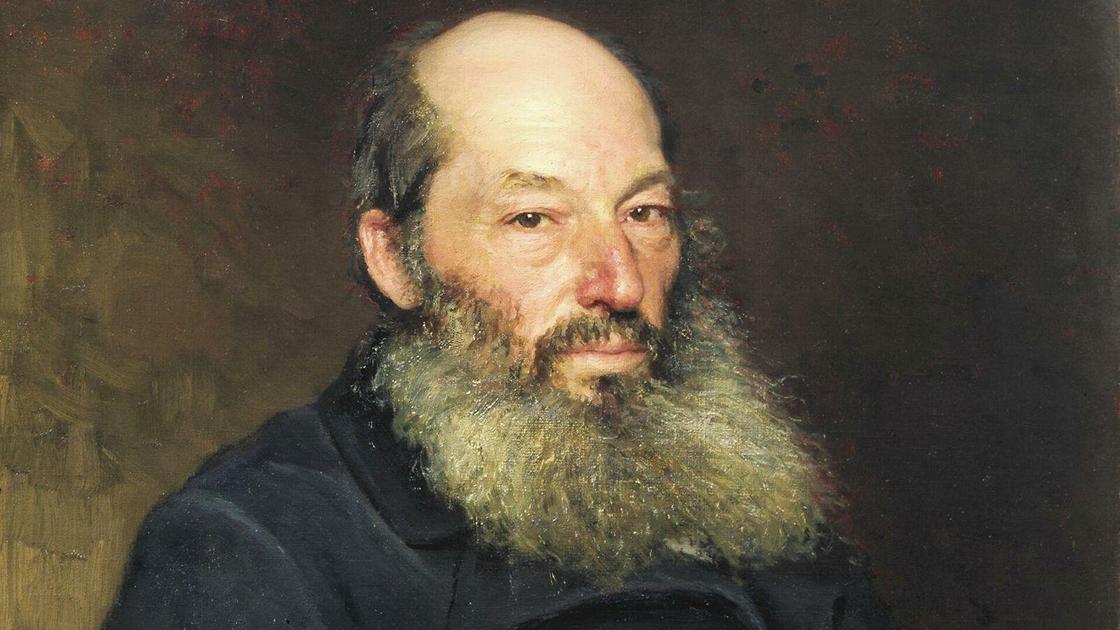
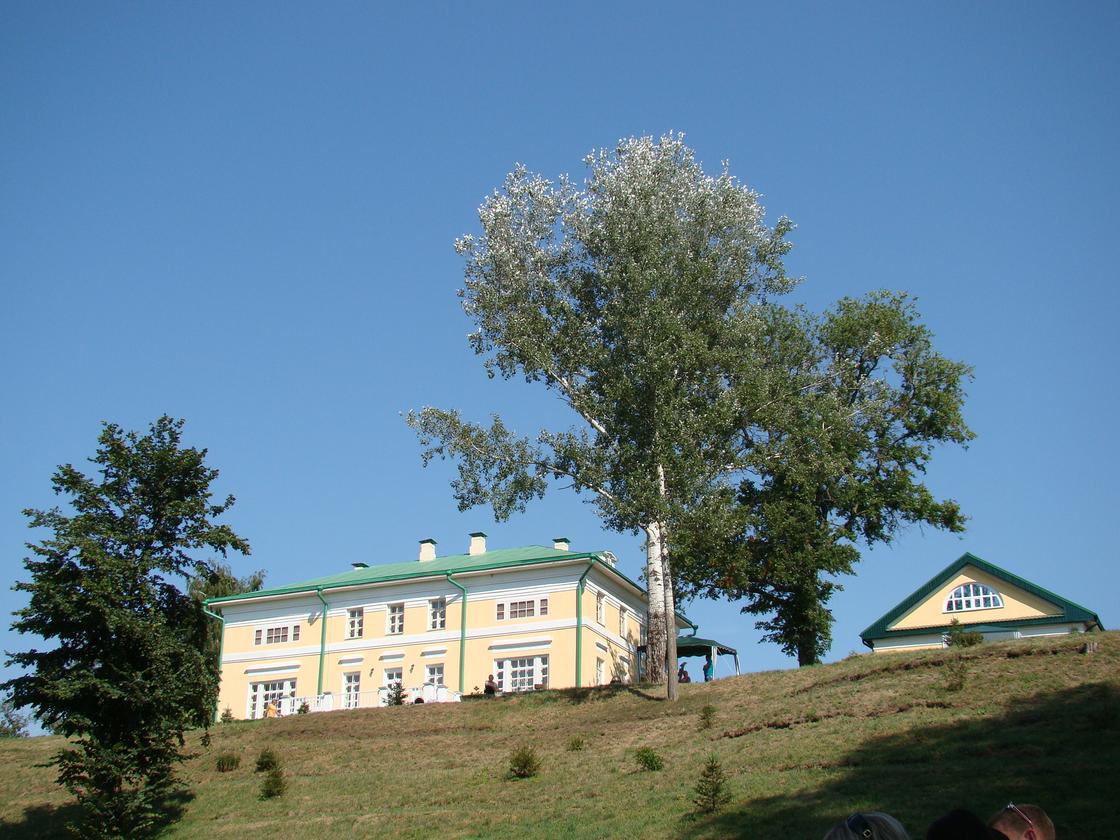
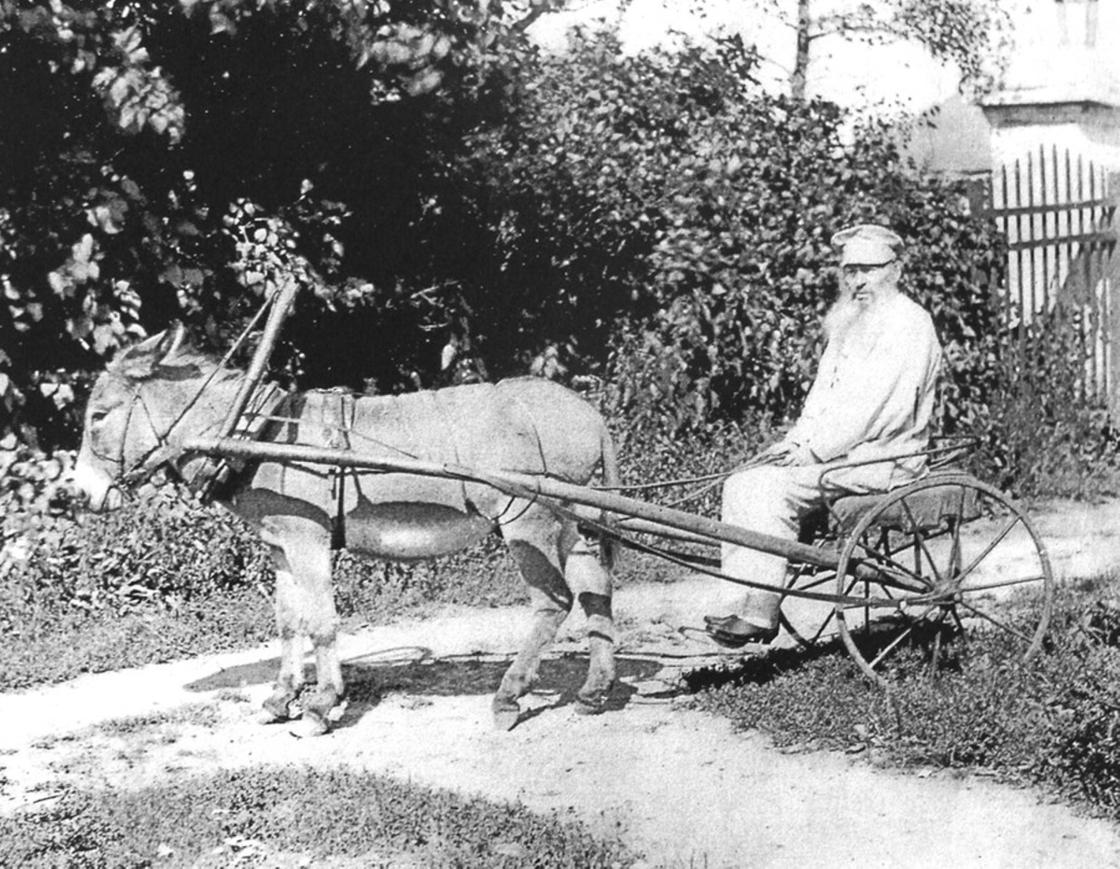

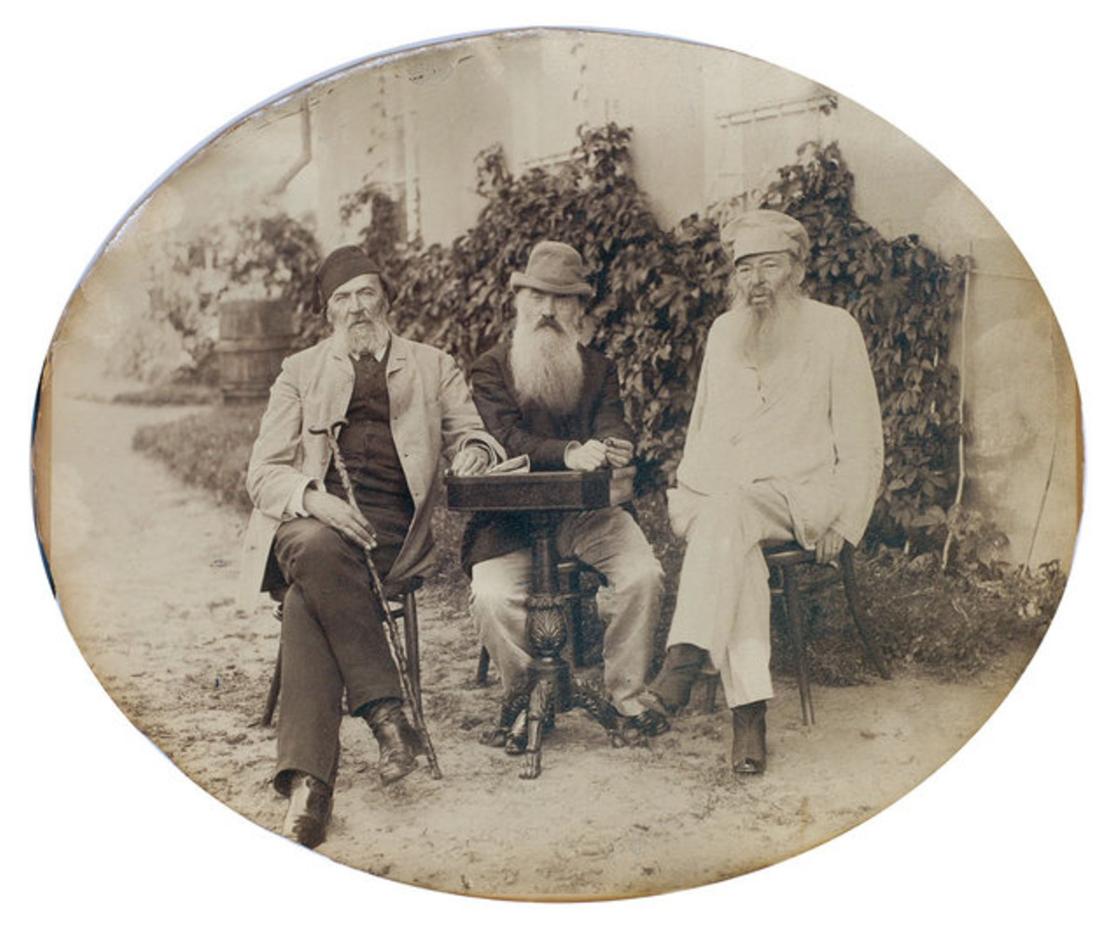
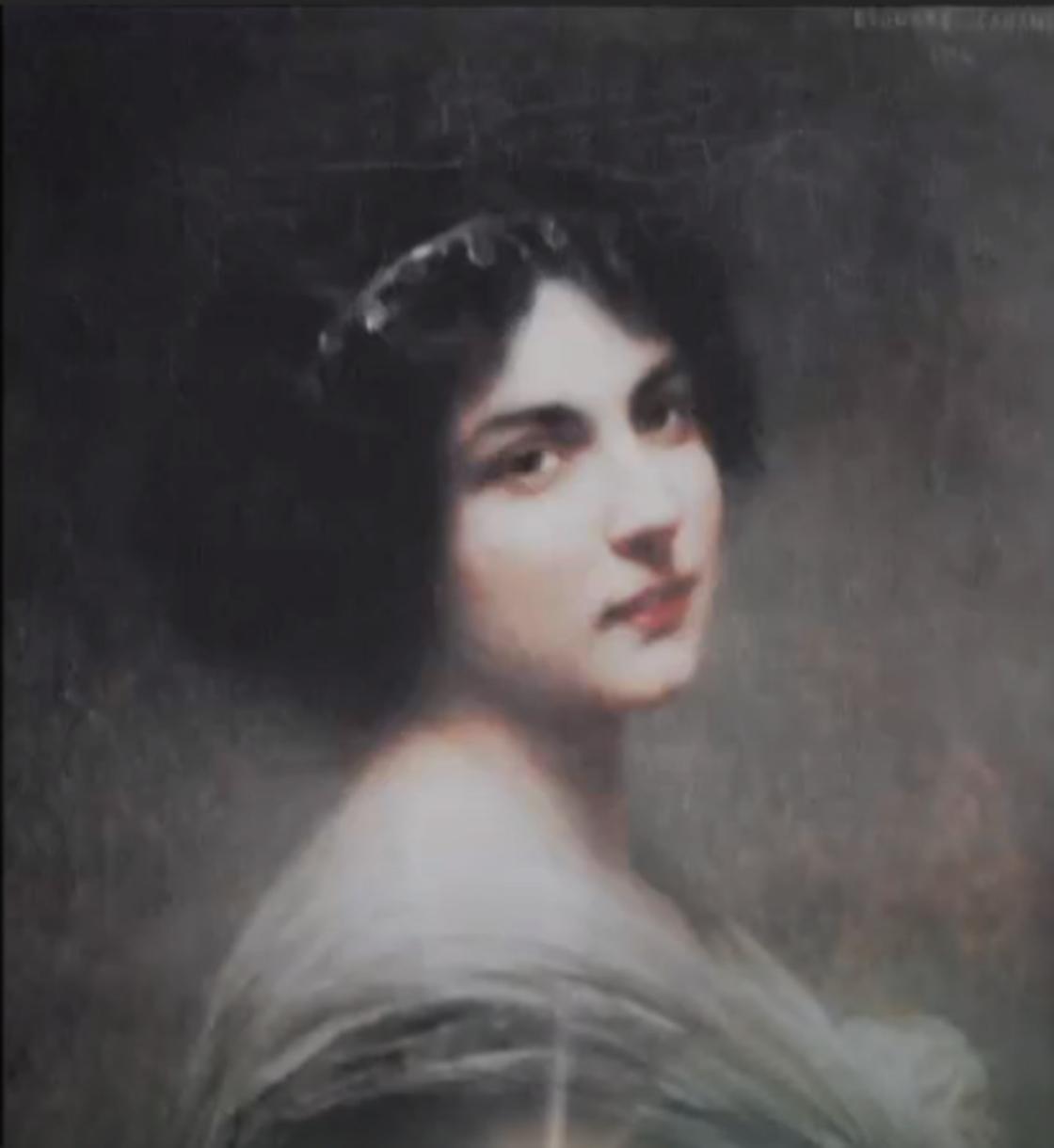
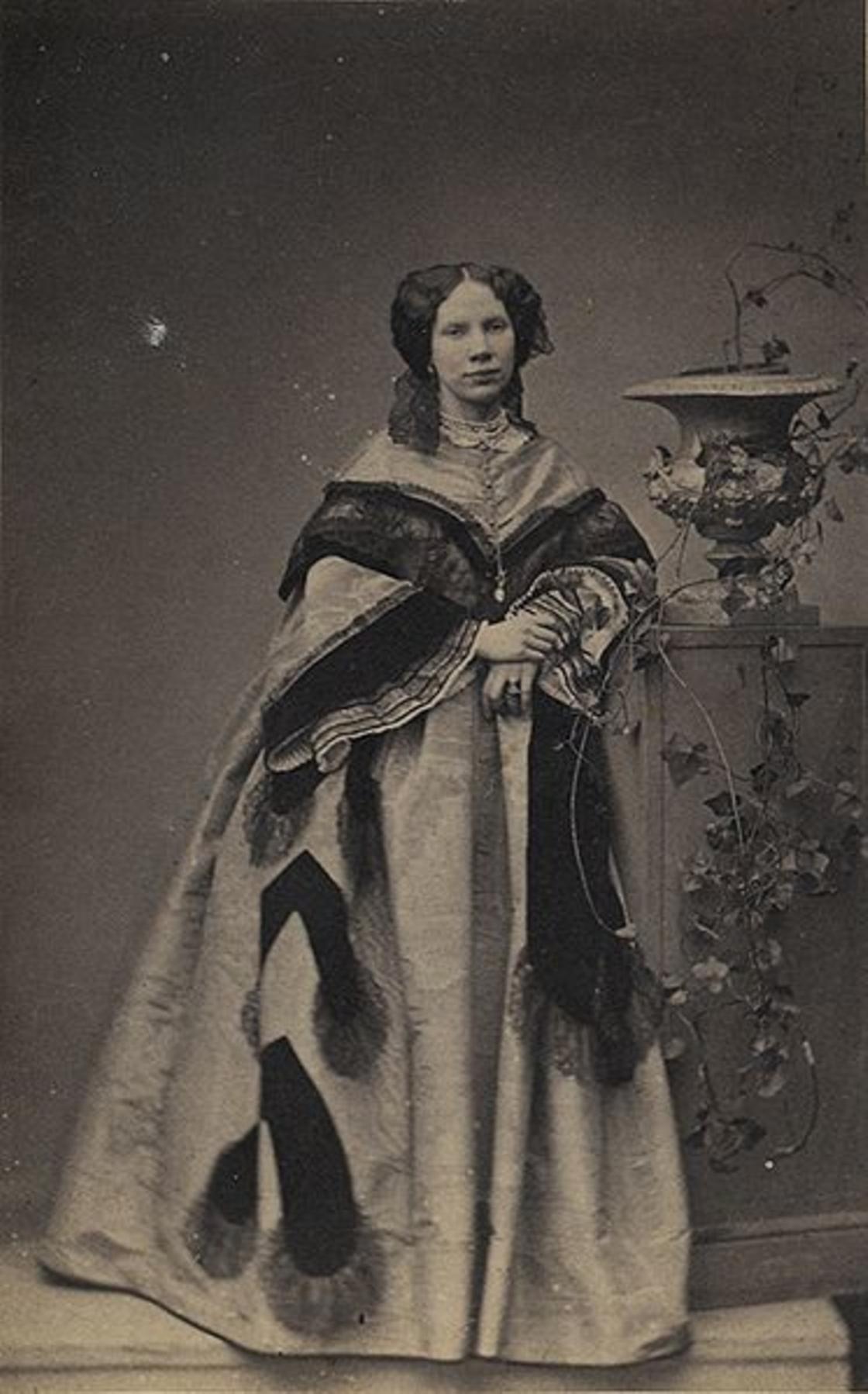
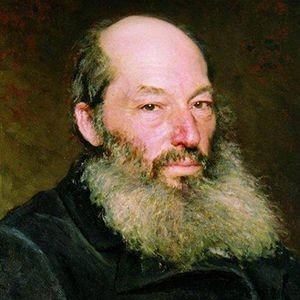
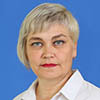
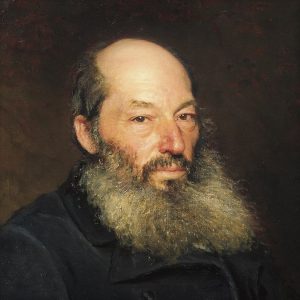 Роль и место в литературе
Роль и место в литературе